WILD SOLUTIONS TO CLIMATE CHANGE
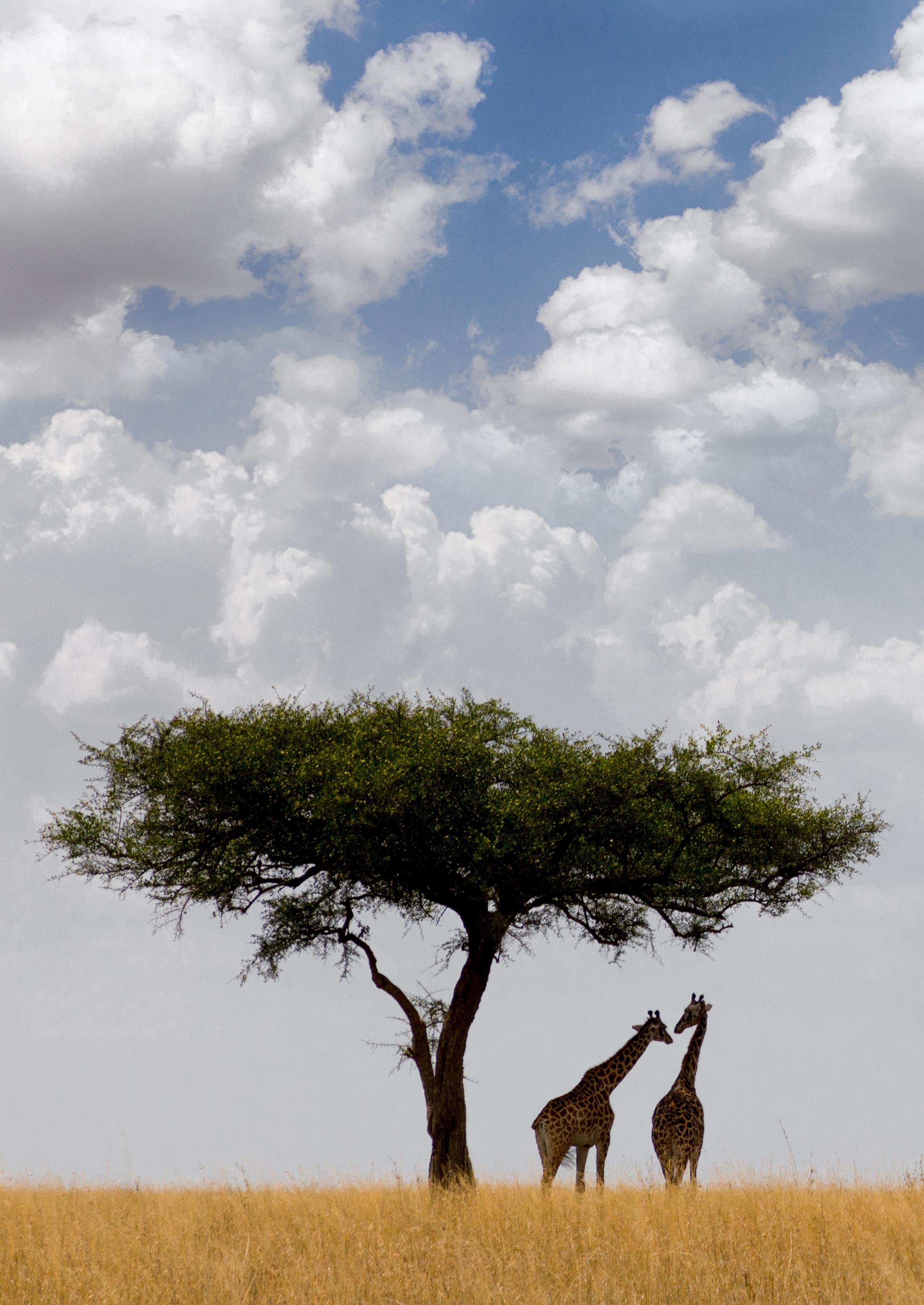
PEOPLE & WILDLIFE IN HARMONY
LET’S CELEBRATE DAME VIRGINIA
Summer 2023 | bornfree.org.uk
Dear Friends
Born Free has never been afraid of tackling the big issues – wild animals in zoos and circuses, or held as exotic ‘pets’, the ivory trade, alternatives to trophy hunting, human-wildlife conflict, compassionate conservation.

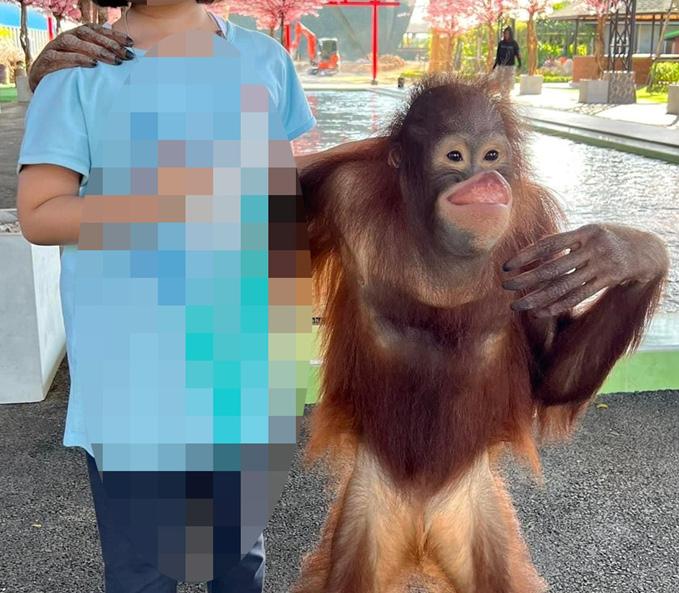
Well, nothing is bigger or more threatening to all life on earth than Climate Change. Protecting wild animals and their natural habitats – core Born Free objectives – has a critical role to play. Intact natural habitats help secure and even reverse the decline in biodiversity and maintain vital ecosystem services.

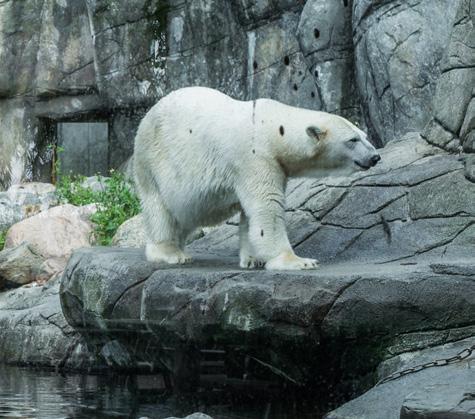
However, Climate Change is making our efforts increasingly challenging. Prolonged droughts, erratic rainfall and temperature extremes threaten people and wildlife alike. If wildlife is going to not only survive but thrive, then tackling the effects of Climate Change on wildlife areas, and on the human communities that share their lives with wild animals, is vital.

That’s why this edition of Wild Life is all about Co-Existence – what needs to be done, what we’re already doing, and what more we can achieve, with your support.
As Virginia says time and again, it all starts with one. One person, one family, one herd, one pride, one species, one habitat, one ecosystem – and, ultimately, one planet. So, thank you for deciding to stand with us and being the change.
Best wishes
COVER STORY
Executive President will@bornfree.org.uk D @willtravers

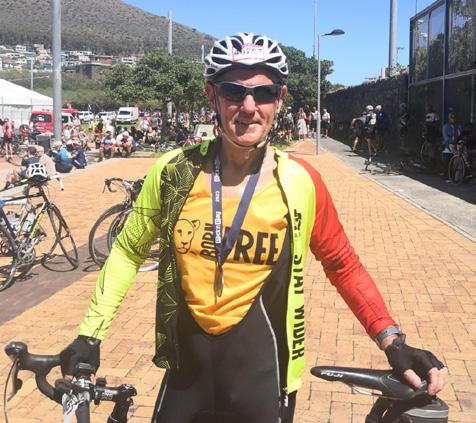
Did you know nature plays a key role in our fight against global warming? We need to protect wild animals to protect the planet! Combatting climate change is already at the heart of all our conservation projects and now YOU can help people and wildlife to co-exist in harmony (pages 6-11).
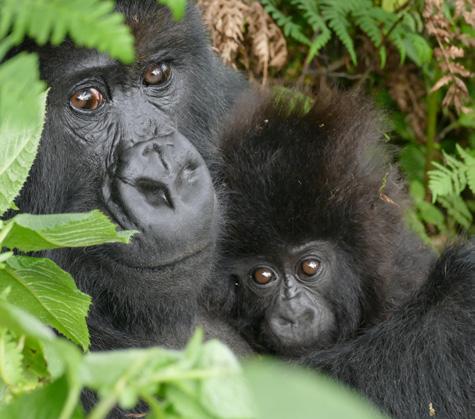
PS Talking of the power of one, I could not be more proud of Virginia receiving her Damehood – recognition for all her amazing work for animals over 40 years, work we all, the Born Free Family, make happen, each and every day.
HAVE YOU HEARD THE LATEST WILD NEWS?
PROTECT WILD ANIMALS AND YOU’LL PROTECT THE PLANET!
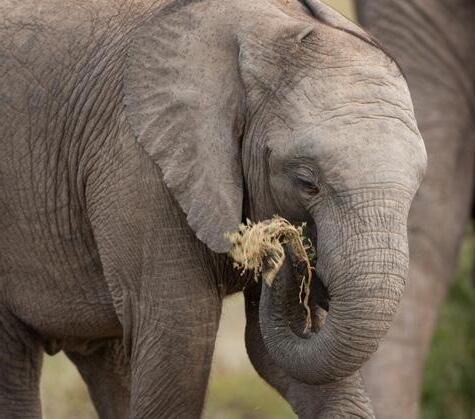
TO TACKLE GLOBAL WARMING, NATURE IS OUR BEST ALLY
LET’S CELEBRATE OUR BELOVED CO-FOUNDER DAME VIRGINIA
ONE MORE THING: A DAY IN THE LIFE OF REAL CONFLICT

06 03 08 12 17 20 22
YOU CAN RAISE THE RED FLAG AND STOP SELFISH SELFIES
SUPPORTERS GOING WILD TO RAISE FUNDS FOR WILDLIFE
OUTSIDE VIEW: WE CHAT TO ECONOMIST RALPH CHAMI
21
Cover photo © Richard Bernabe
NEW
Have You Heard?
WELL DONE, DR MANOA!
JOIN THE CELEBRATION
To the delight of supporters worldwide, our beloved Co-Founder Virginia McKenna was made a Dame in the UK’s New Year Honours, recognising her devotion to conservation and wild animal welfare. “This award really belongs to all those striving to end wild animal suffering and keep wildlife in the wild,” said Dame Virginia – as humble as ever.
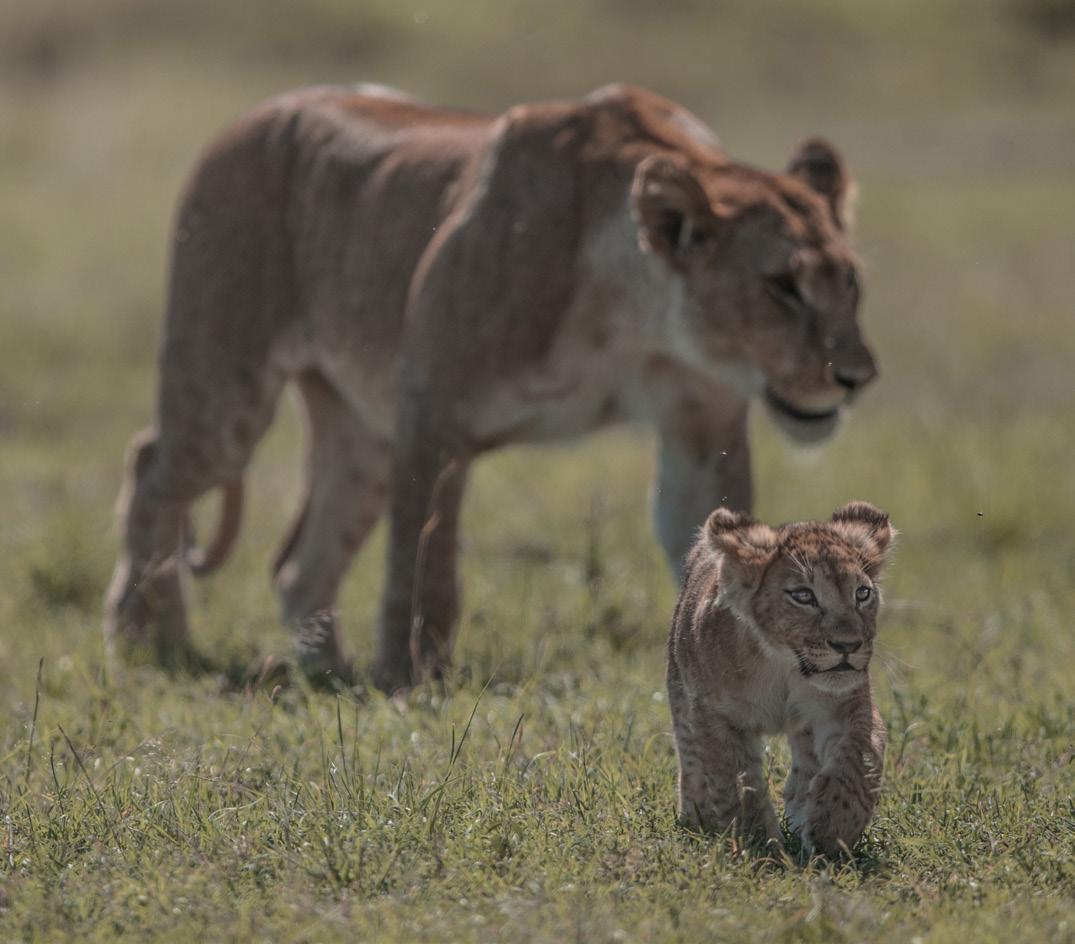
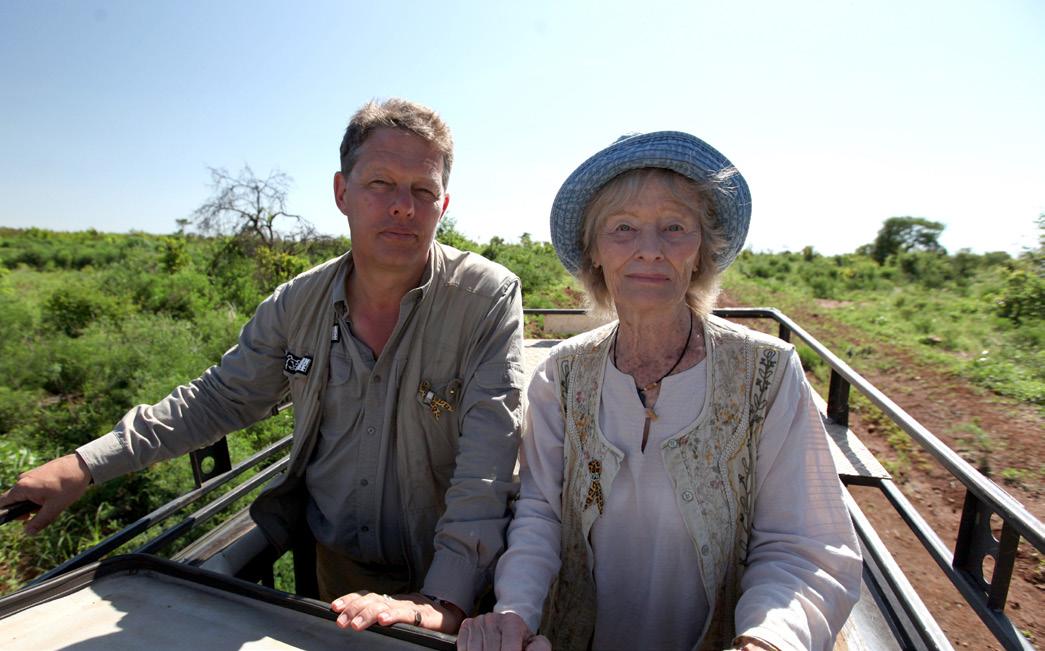
BORN TO ROAM
Our powerful new report, exposing polar bear suffering in zoos, made headlines in February. In Europe alone, 151 of these wide-ranging apex predators are incarcerated, including 12 in the UK. “The zoo industry must accept polar bears’ welfare needs cannot be met in captivity and bring this practice to an end,” said our Captivity Research Officer Chris Lewis. Read the report at bornfree.org.uk/publications

We’re thrilled. Our Kenya colleague David Manoa has just received a PhD for his thesis on human-wildlife conflict. Manoa works full time as our Pride of Amboseli Manager, often in difficult circumstances, so this achievement is colossal. “Huge congratulations, this prestigious accomplishment puts Born Free at the forefront of practical actions to protect wildlife in Kenya,” said a delighted Will Travers.

CHEWTON GLEN GOES WILD
Our spectacular pride of 23 life-size bronze lions, created by artists Gillie and Marc, has a new home prowling the beautiful grounds of Chewton Glen Hotel, in Hampshire. They were unveiled at a launch party in March, hosted by Will Travers and Patron Kirsty Gallacher. Now we encourage everyone to come, to marvel – and maybe even take one home! bornfree.org.uk/born-free-forever
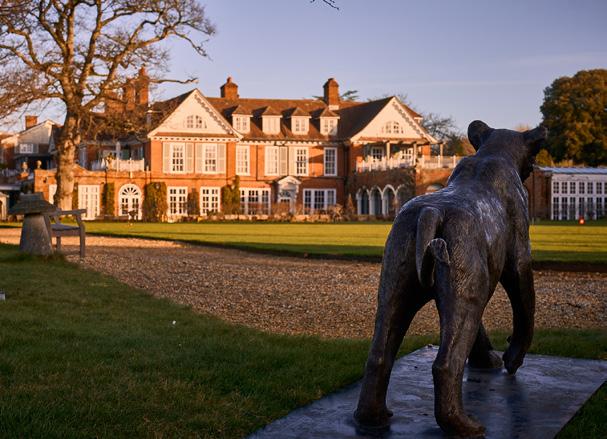
3 Wild Life | Summer 2023
ALL THE LATEST FROM BORN FREE
© Daisy Beck
Virginia with her son Will
© J McArthur/BF
© Adam Lynk / Chewton Glen © georgelogan.co.uk
Have You Heard?
YOU’RE A LIONHEART!
Thanks to your generosity, our 2022 Year of the Lion was a smash, raising nearly £420,000 for lion care and conservation. This includes £62,000 from our recent Saving Lions Together appeal, plus a further £101,900 from lion adoptions over the year. Visit bornfree.org.uk/blog for the full story.
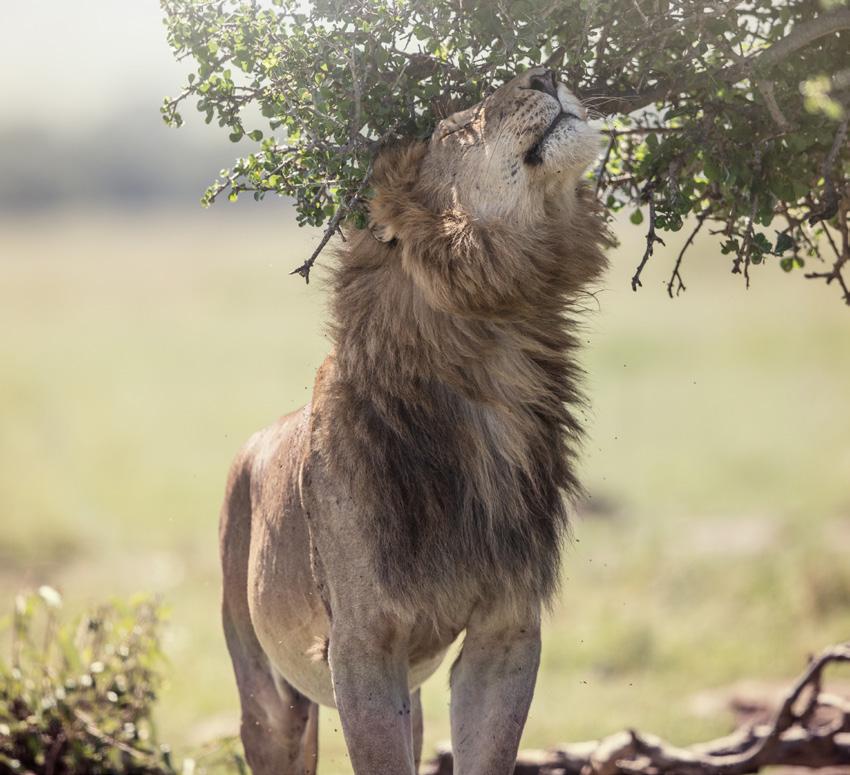
KILLING FOR KICKS
With thousands of you taking a stand to support our campaign, UK MPs have voted to ban the import of elephants, lions, giraffes and other endangered animals’ body parts. The House of Lords will now rule on the Bill that would stop British hunters bringing sickening ‘trophies’ back to the UK and Born Free will do all we can to ensure it passes into law.
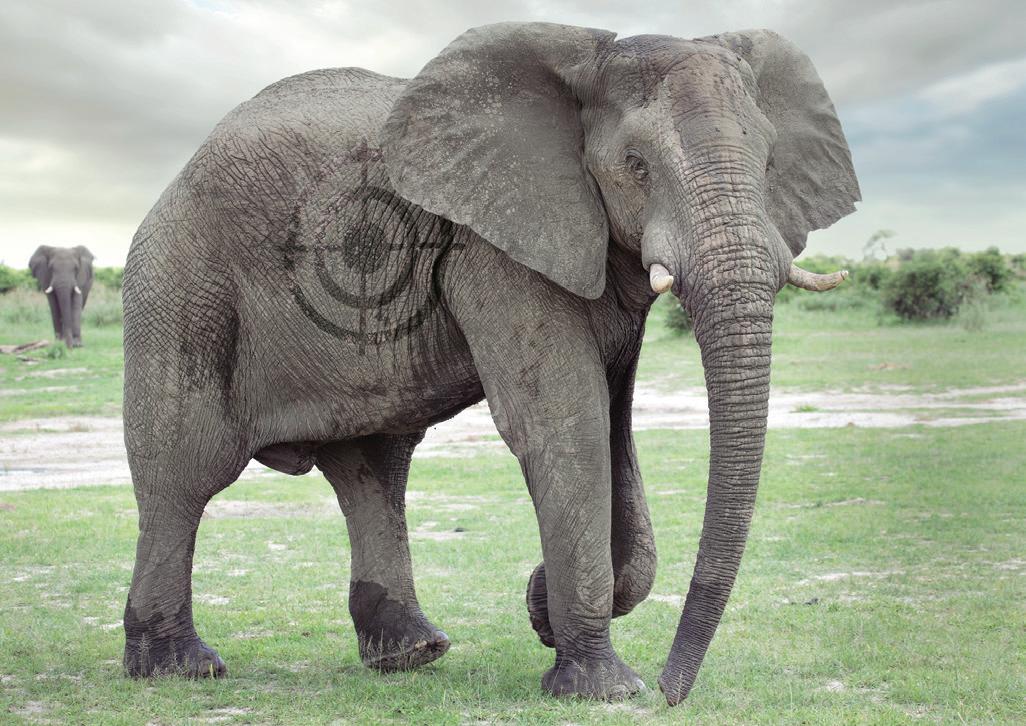
EVERY CUB COUNTS
THE PEOPLE HAVE SPOKEN
An independent poll, commissioned by Born Free, revealed at least 75% of the British public want the next UK government to phase out large animals in zoos (such as giraffes, elephants and lions), to tighten rules on exotic pets, help end cruel overseas activities and more. Read our full UK Manifesto Survey Report at bornfree.org.uk/publications

Fantastic news from our homeland of Meru National Park in Kenya, where Elsa the lioness was returned to the wild. We named Elsa’s Pride in her honour so, imagine our joy when we recently spotted six new cubs. Kenya reports a 25% lion increase to over 2,500, since 2010 – the year our lion conservation work began there. With innovations including hundreds of reinforced bomas (livestock enclosures), flashing lights and eyes painted on cows, no wonder lions are on the up! See bornfree.org.uk to find out more.

TALKING OF A BABY BOOM…

Kenya has announced a 66% increase in black and white rhinos to 1,739 since 2014 – the year we began to support rhino conservation in the country. “Meru National Park is a vibrant and important breeding ground, home to 123 of these rare rhinos, which is 7% of Kenya’s total,” explains Newton Simiyu, Head of Saving Meru’s Giants. “We help Kenya Wildlife Service’s brave rangers keep them safe.”

04
HAVE YOU HEARD
© georgelogan.co.uk
© georgelogan.co.uk
© georgelogan.co.uk
© georgelogan.co.uk
Resolving conflict, saving lions
BIG CATS, LITTLE CATS
One year on, the four servals, the lion youngster Simba and the four Lions of Lockdown are flourishing in their various sanctuary homes, thanks to you. Each rescued from the cruel wild pet trade or life in a circus, this time last year you changed their worlds and ‘took them home’. Visit bornfree.org.uk for full updates and to read the latest on our beautiful tiger Sandro, rescued TWO years ago.
STOP ONLINE ABUSE
It’s horrific but, images and videos showing deliberate cruelty to wild animals are easily accessible on social media, with little or no regulation. Born Free is calling on the UK Government to include animals in its proposed Online Safety Bill but, we need your support. Please write to the Secretary of State – visit our site to find out more.
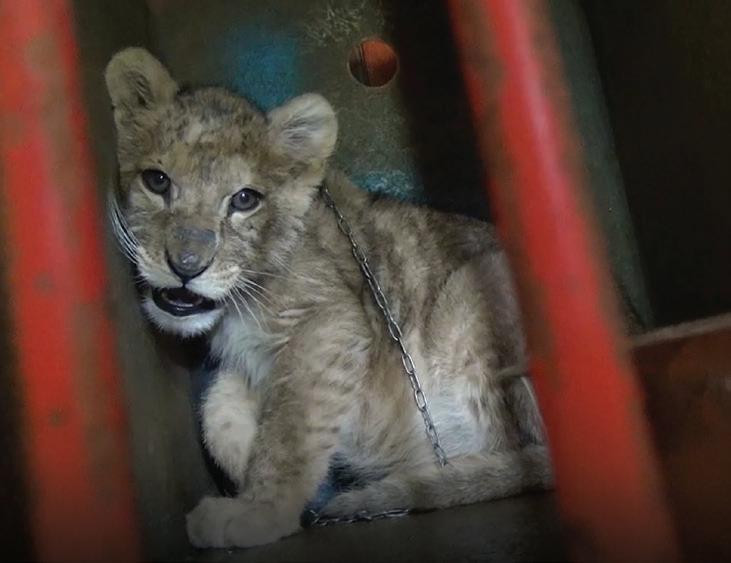
YOU DID IT!
Congrats to our dynamic London Marathon Run Wild squad for completing the world’s most famous road race and raising £30,000+ for wildlife, this April. See bornfree.org.uk for the full story of our 22 heroes and email info@bornfree.org.uk to run or help at next April’s race.

INNOVATIVE AND HUMANE
Supporters, industry professionals and press joined Born Free and a panel of experts, both in person and online, to discuss a future Beyond Trophy Hunting, at London’s Royal Geographical Society, last December.

“If we are courageous, we can develop alternatives that deliver for people, conservation and nature,” said Will Travers. Visit bornfree.org.uk/trophy-hunting to watch a recording of the event and see Upcoming Events below.

ORPHANS IN NEED
From ten new brown bear orphans in Russia, to hedgehogs, badgers and foxes rescued in the UK, every animal deserves a life free from harm. With your support, the baby bears are now undergoing expert care to prepare for release, while we have donated funds and equipment to an astounding 38 UK-based rescue centres. Visit our website to find out more.
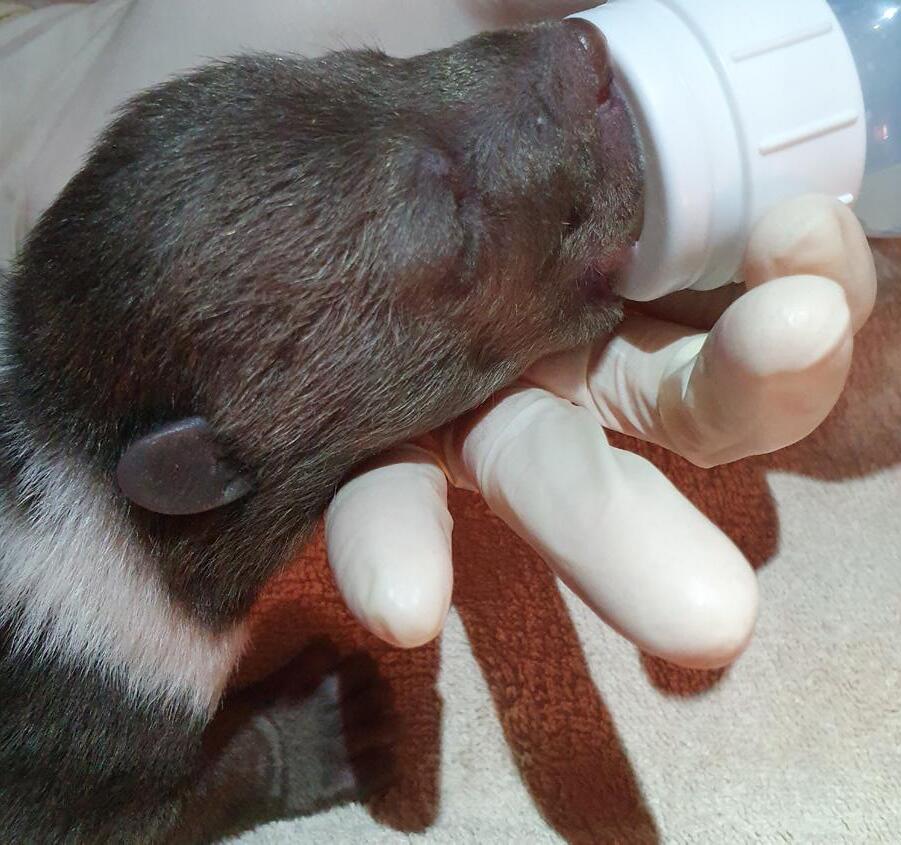
UPCOMING EVENTS 2023
We look forward to seeing you soon!
• Born Free Champions Lecture, inaugural event – in person or online, Wed 31st May, Hambros Bank, London (see page 15)
• Beyond... annual discussion, November, Royal Geographical Society, London Find out more at bornfree.org.uk/events
05 Wild Life | Summer 2023
© Panthera Africa
© F30MA
© Whitehat
©OBRC
As Born Free’s Head of Conservation, as a nature lover, a mother and aunt, and as someone living on this earth, with your support I will do everything I can to help curb climate change and safeguard our futures.
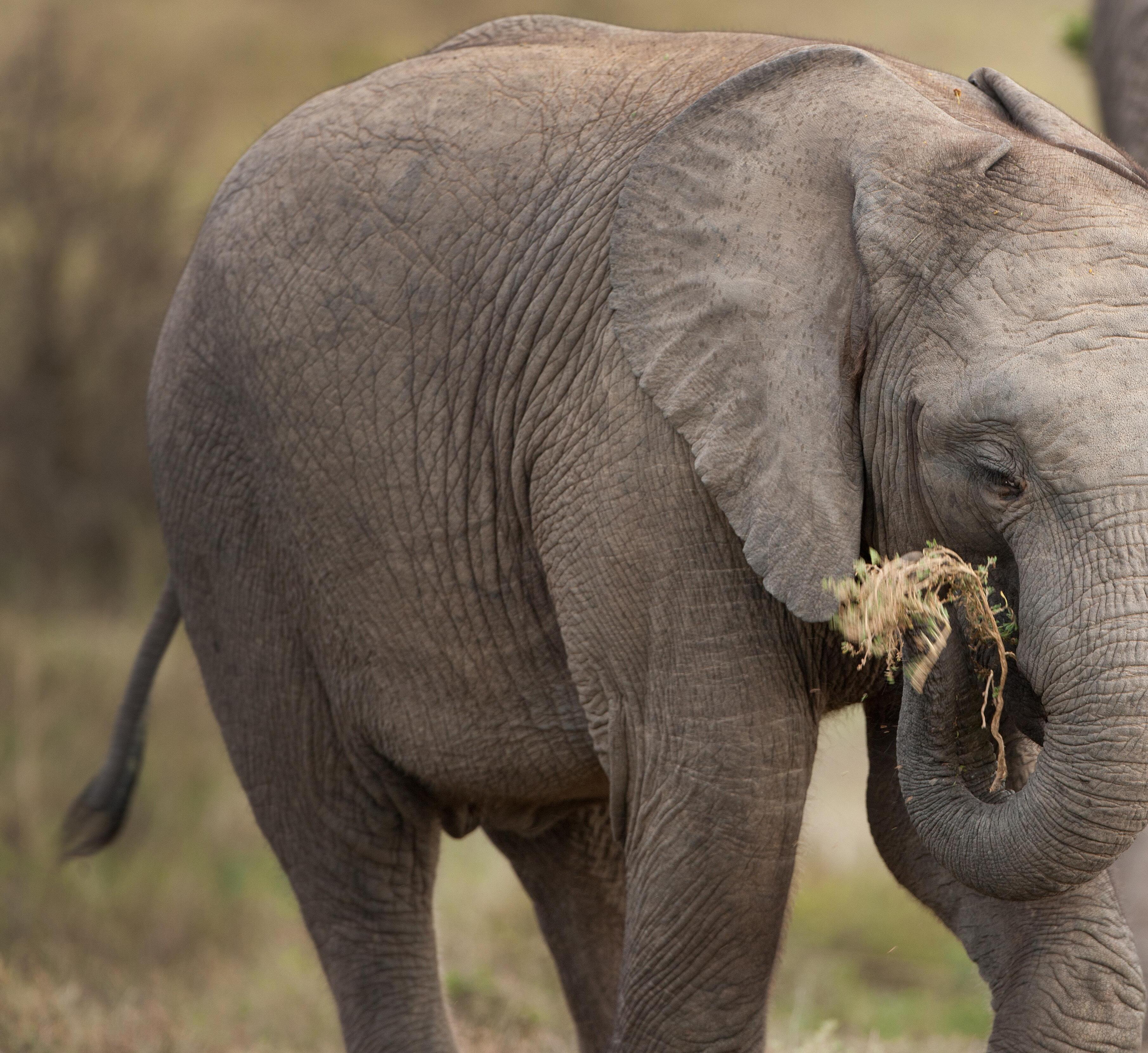
A global average temperature increase of 1.5°C* is likely locked in. As carbon emissions continue to rise, it may be just a matter of time before we reach 2°C (more like 7°C on land). Breaching 2°C could set us on an inescapable path towards tipping points in key global systems, like Arctic melt and Amazon rainforest ‘savannisation’. These runaway processes can lead to feedback loops, vicious circles compounding all climate-related impacts, and ultimately rendering vast swathes of the world’s land –where billions of people currently live – uninhabitable.
Conservation is key
A global assessment of the state of nature, published in 2022**, revealed wildlife has declined by an average 69% since 1970. Today, one million species are threatened with extinction. This is shocking but, does not consider the rapidly escalating effects of climate change which above 2°C, may become the greatest threat to biodiversity. Animals which can, may move to higher, cooler altitudes as a temporary adaptation to dangerous levels of heat – known as the ‘escalatorto-extinction’. Ultimately, the impact on wildlife could be catastrophic, with significant extinctions probable in the majority of ecosystems.
The climate crisis cannot be unmeshed from the biodiversity crisis – the causes and impacts are interlinked. So, fortunately, are the solutions.
6
Combatting climate change is at the heart of all our conservation projects, so our mission to protect wild animals is more crucial than ever, explains Dr Nikki Tagg.
© georgelogan.co.uk
YOU CAN HELP
Support our work by adopting a tiger or a family of giraffes, elephants or lions at bornfree.org.uk/adopt and visit bornfree. org.uk/climate-change-and-biodiversityloss for other ways to take action.
“Born Free’s conservation programmes focus on hero species, such as the tiger, giraffe, elephant and lion and operate at landscape level, aiming to preserve the species and its habitat. So, all our work inherently combats climate change, because we enable wild animals to continue playing their unique roles as part of natural, evolving ecosystems.”
Will Travers OBE Executive President

We must all take action to halt carbon emissions to prevent runaway warming. We need to embrace transformative change – how we live and consume, and value nature. As a society, we must direct a huge global investment into protecting and restoring wildlife and natural habitats, to lock in carbon and ensure the stable climate on which all life relies.

Born Free is doing its bit. With your invaluable support, our team protects natural habitats, reduces humanwildlife conflict and empowers people to positively co-exist with wildlife. Just a few examples:

• Every month we remove about 80 deadly wire snares – set illegally by poachers – in Meru, Kenya, thereby securing grassland habitat for grazing wildlife such as giraffe
• We help farmers use composting instead of ‘slashand-burn’ farming in Dja, Cameroon, and restore vital gorilla-habitat forest on abandoned plantations
• We help a network of eight local organisations in Satpuda, central India, ensure safe access for tigers moving through corridors between protected areas
• We distribute thousands of energy-saving stoves and water storage towers to empower families in remote areas to cope with climate extremes such as drought
• We help farmers live alongside animals like lions and elephants, fortifying 380+ livestock ‘boma’ enclosures and installing our first ‘beehive fences’

Please join me and do what you can. Support our work to protect wildlife and play your part in combatting the global climate and biodiversity crises.
Dr Nikki Tagg Head of Conservation nikkit@bornfree.org.uk
7 Wild Life | Summer 2023
*Agreed in the 2015 Paris Agreement, an international treaty on climate change **WWF (2022) Living Planet Report 2022 – Building a nature positive society.
D & Petersen, T (Eds). WWF, Gland, Switzerland.
Almond, REA, Grooten, M, Juffe Bignoli,
Elephants are scared of honey bees. So a beehive deters elephants, protects crops, helps a farmer AND provides income
The Born Free slogan, ‘Keep Wildlife in the Wild’ will resonate with readers of Wild Life for a variety of reasons, mostly I would guess, based on an empathic understanding of the frustrations of captivity – something we all felt during ‘lockdown’. Concern for the suffering of animals whose natural urges are thwarted at every turn by the confines of cages, or fenced paddocks, drives us to work to improve their lives and where possible, return them to their natural habitat.

‘Romantic tosh’, some would say, ‘as long as they are given the right food and a mate and a bit of environmental enrichment they are better off in captivity – safe from poachers and receiving veterinary care when ill.’ This debate between the pro- and anti-zoo factions has raged for decades, but times are a-changing. How does it look in our newly carbon-conscious world, or in the light of recent research into the role of animals in ecosystems?
On land and in the oceans, there is a growing awareness of the importance of our ecosystems as life-support systems for the planet. Given the agreement reached at CBD CoP15 (page 11) in Montreal last December, to protect 30% of the world by 2030, and the muchdiscussed ‘biodiversity funding gap’ of $700 billion+ per year needed to pay for this, there are new arguments to consider and a new question: what is the true value of nature and, indeed, of individual animals?

8
Nature’s true value
© K
In the global battle against climate change, the natural world is our best ally, explains Ian Redmond. To combat global warming, we need to keep wildlife wild!
Izina
One of the landmark moments in my life was finding the body of Digit, a young silverback mountain gorilla who had been speared by poachers and decapitated. Digit had been studied by Dr Dian Fossey in Rwanda’s mountain forests for a decade, from 1967 when he was a playful bundle of fluff with a crooked finger (likely a snare injury, hence his name) to him becoming the splendid young silverback I first met when I became Dian’s assistant in 1976. At that time, he was still living on the periphery of the group in which he grew up and, lacking peers of the same age, he would sometimes come over and sit beside me during rest periods and watch me taking notes on the behaviour of the other members of his family.

Ten years later, it happened again. In 1987, I found myself standing beside the rotting remains of Charles, one of the famous underground elephants I was studying on Mount Elgon, Kenya. He was barely a teenager and I knew him because he had previously proved tolerant of the biologist cautiously following him into a side chamber of Kitum Cave, to photograph him mining the mineral-rich rock. His patience wore thin, though; after a couple of flash photographs, he turned round and stuck his ears out (which is why I named him Charles). I backed away and clearly this was enough to reassure him because after a pause, he resumed his tusking. Again, like Dian, I was winning the trust of a wild animal by inter-species communication as a way of doing research.
From that perspective, talk of the economic value of gorilla beings is anathema. A gorilla is an autonomous self-aware member of his or her community, living in a society with rules and able to make decisions about what to eat, where to sleep and with whom to spend time. Success in life will be determined by those decisions. To a traditional economist, these philosophical ideas may be interesting but in economic terms – bearing in mind this was before gorilla tourism was developed – Digit had a dollar value of zero… until he was speared. Then, his head and hands were worth $20 to the poachers, who had been told by a local trader that they would be paid that amount if they brought him these gruesome trophies.
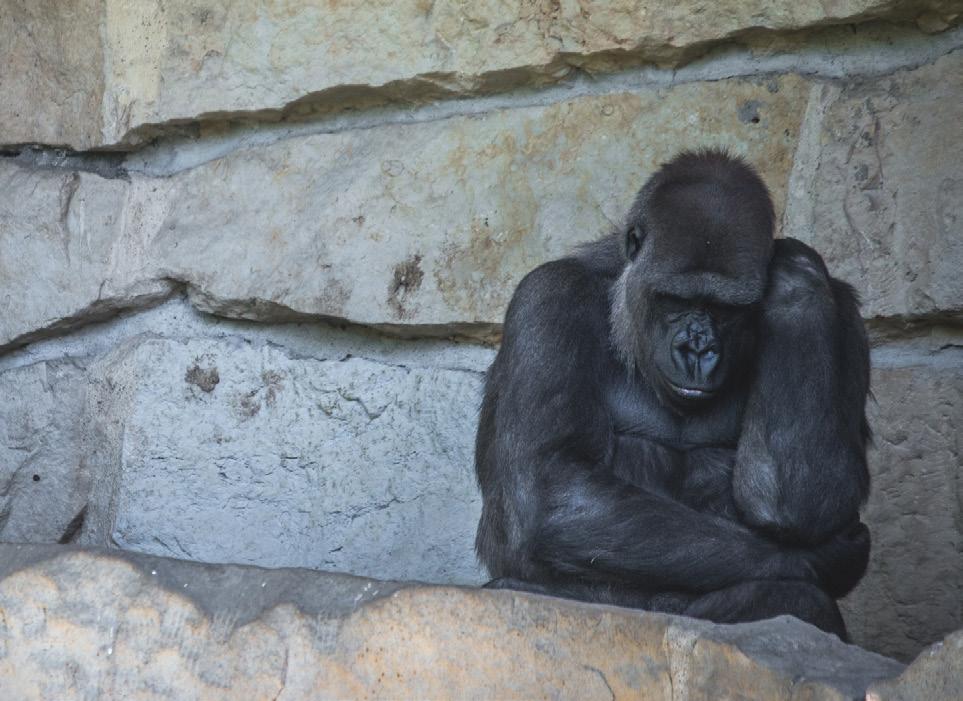
Charles was killed by ivory poachers as he and his family entered Kitum Cave. The poachers evidently knew of the mining behaviour and saw it as an opportunity for an ambush. In a hurry to escape the rangers, who would have heard the gunshots, they sliced off the tusks in a single plane, apparently with a chainsaw. At that precise moment, Charles went from a dollar value of zero, alive, to a few hundred dollars, dead – maybe eventually a few thousand dollars once the ivory was carved. Why does our modern society only value nature when it is dead?
Just as Dian had established the Digit Fund to channel her anger into something positive (now the Gorilla Organization in UK and the Dian Fossey Gorilla Fund International in the USA), I launched an appeal – The African Ele-Fund – with the help of BBC Wildlife Magazine and several charities – including Zoo Check, to fund practical elephant conservation. In 1989, we launched the Elefriends campaign to lobby for a ban on the ivory trade. This was so successful, it became a bigger enterprise than Zoo Check, and so the trustees (Bill Travers in particular) decided to change the name to the Born Free Foundation, under which Elefriends, Zoo Check and other campaigns and projects could operate.
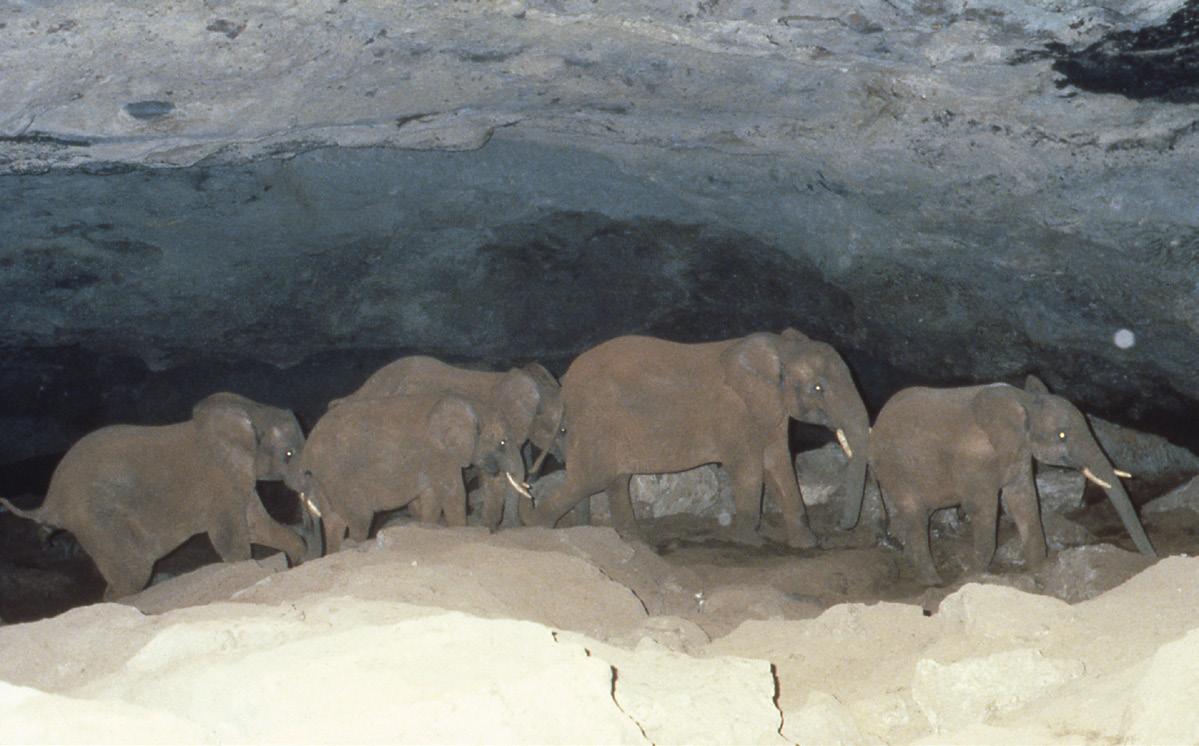
9 Wild Life | Summer 2023
With my friend Digit in the 1970s
Mount Elgon’s unique salt mining elephants
© Prof R Wrangham
Keeping a gorilla in captivity adds to the climate crisis
© J McArthur/BF
© I Redmond
What can we conclude from these two incidents? Like Digit, Charles had no economic value as a living elephant (there being virtually no tourism to Mount Elgon). The lesson seemed to be that in the absence of a dollar value ascribed to living organisms, conservation funding must depend on philanthropy or – if attractive to tourists – the ‘ornamental’ value of animals and plants.
Fast forward to 21st February 2023 and the inaugural Natural Capital Conference in London, where I spoke about the state of the planet, and how gorillas and elephants can help. This was not my usual audience of students or naturalists (though there was a smattering of both), it was a 450-seater lecture theatre packed with senior corporate, financial and business people.
Organised by Rebalance Earth, a community interest company of which I am a co-founder and Born Free is a charity partner, it was designed to outline and discuss our exciting proposal to apply the new economic paradigm developed by Dr Ralph Chami (see page 21). This values living nature by looking at the role of ‘keystone species’ in ecosystems and calculating a dollar value for the ‘work’ done by each animal.
Taking the examples of Digit, Charles and other poacher victims, I asked the audience to consider not just the suffering of the individuals killed and their family, but to think of what was lost to the ecosystem as a result of their death. Digit might reasonably have lived to 35 years, like his younger brother Titus or Pablo, the gorilla who sat on Sir David Attenborough in the famous Life on Earth BBC TV series, who both reached that age and fathered numerous offspring.
A silverback produces more than 10kg of dung per day, 365 days a year for more than 20 years – therefore the death of Digit at about 13 years of age deprived the soil in his home range of more than 80 tonnes of first-class organic manure, spread over 22 years. An elephant such as Charles might produce about one tonne of dung per week, 52 weeks per year, but his life was shortened by about 50 years, which equates to 2,600 tonnes of manure NOT spread around the forests of Mount Elgon.
According to research by Dr Fabio Berzaghi, Congo Basin forests with elephants are more productive than similar forests from which elephants have long been extirpated, resulting in 7-14% more above ground biomass (wood, stems and leaves of vegetation). This is because the elephants eat the softer (low-carbon) plants, which both reduces competition and fertilises the big (high-carbon) trees.

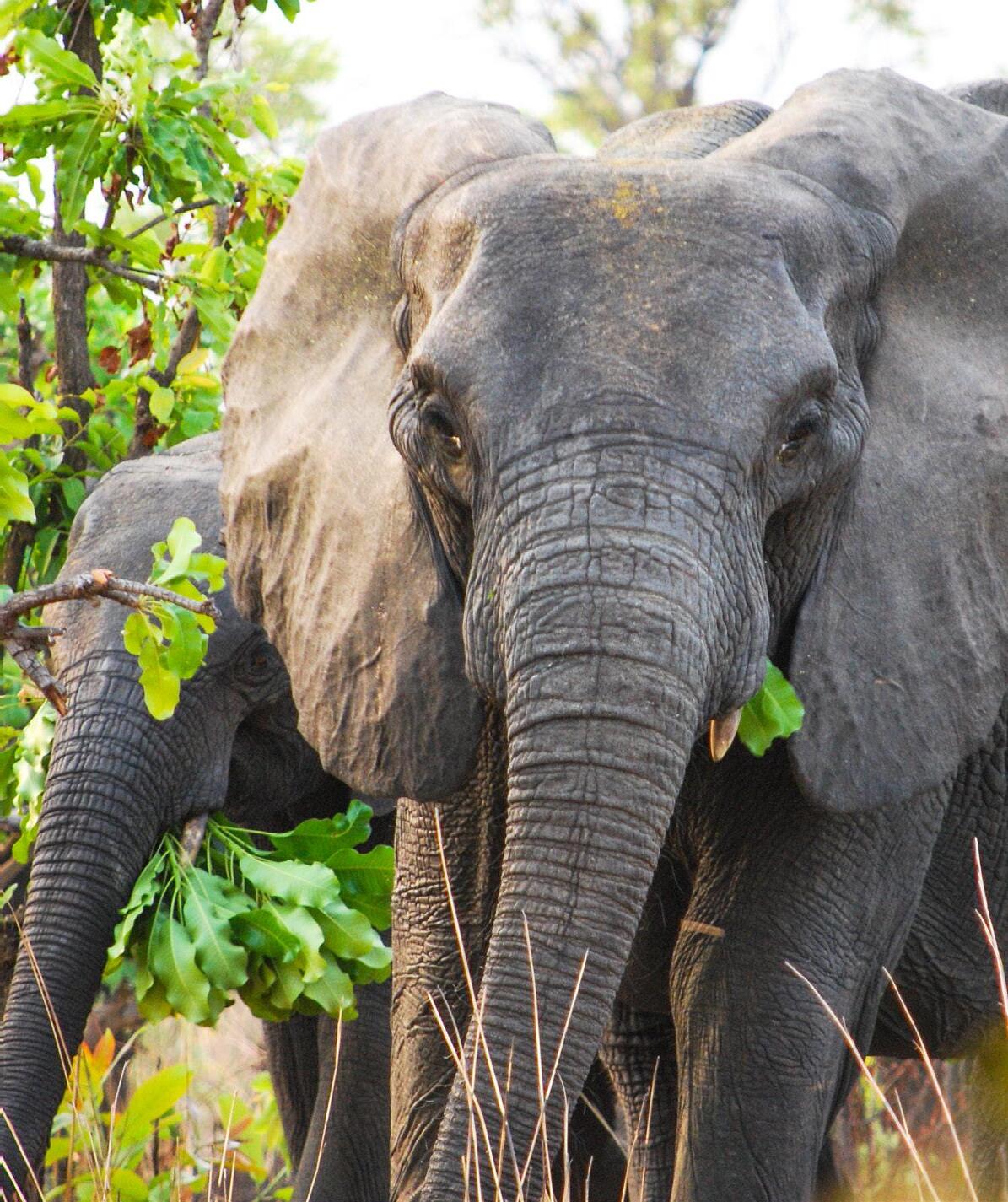
In our carbon conscious world, this effect is worth money – Ralph Chami calculates that the additional carbon capture attributable to each forest elephant over the course of his or her life is worth $2.6 million. Rebalance Earth proposes to sell the services of elephants and other keystone species to companies and individuals wishing to reduce their ecological footprint, thereby bringing significant new conservation finance as well as generating jobs for indigenous people and local communities in and around these ecosystems.
Currently, the only ecosystem service with a market value is carbon sequestration, but the ‘nature credits’ we envisage will include other services – oxygen, fresh water, biodiversity, etc – and will also help contribute to the UN’s Sustainable Development Goals. Animals really are our allies in the fight against climate change and ecosystem collapse, and yet the past 50 years has seen their numbers decline on average by 69%, according The Living Planet Report
10 Nature’s true value
Seeds germinate in elephant dung
Elephants play a key role in forests and YOU can help protect them
Archive
Book Images
© I Redmond
YOU CAN HELP
If, like Ian, you have a passion for gorillas or elephants, adopt one of our wild families today to help keep them safe and fulfil their roles as keystone species: bornfree.org.uk/adopt
Zoos add to global warming

The UN has declared this to be the Decade of Ecosystem Restoration. Born Free’s projects help depleted animal populations recover, work with communities to reduce human-wildlife conflict, and help stabilise the climate. Contrast that with a zoo animal walking around an enclosure like a cog taken out of a machine; instead of being a gardener of the forest or savannah, captive animals are unemployed, and actually increase greenhouse gas emissions from all the fuel and energy used by zoos.
It turns out that keeping wildlife in the wild is important not just for the welfare of the animal but for the good of the planet too.
The keeping of wild animals in captivity is expensive. Not only financially, but also in terms of carbon. As highlighted in our recent report, Born to Roam: The Suffering of Polar Bears in Zoos (page 3), zoo enclosures are typically made from materials whose production generates large amounts of greenhouse gases. Steel and concrete production are each responsible for eight per cent of global greenhouse gas emissions, while the production of glass further contributes to the problem. The animals who end up being incarcerated within these enclosures are not able to deliver any carbon-saving contribution to their natural ecosystems.
Ian Redmond OBE Senior Wildlife Consultant ian@bornfree.org.uk
A global deal for nature
“With your support, our team called for transformative change to stop biodiversity loss at the UN’s crucial COP15 summit in Montreal, Canada last December. Protecting and restoring wildlife is essential for its own sake and for the myriad ‘services’ it provides, including regulating our climate since the natural world absorbs the greenhouse gases that cause global warming, stores carbon, and buffers against extreme weather and its consequences. Conversely, combatting climate change improves animals’ health and well-being, and that of their habitats.
“In December, the UN Convention on Biological Diversity adopted the Kunming-Montreal Global Biodiversity Framework. While not perfect, it provides the basis for the global collaboration so desperately needed if we are to rescue nature and limit global warming. Born Free was heavily involved in the negotiations that led to this historic agreement, and we will be working hard to ensure its robust implementation.”
Adeline Lerambert International Policy Specialist
Born Free
Wild elephants have been dubbed a super-keystone species due to the profound impacts they have on their habitats, which benefit countless other species. The removal of these ‘mega-gardeners of the forest’ not only disrupts family groups but has consequences for the wider environment. Each adult elephant produces roughly one metric tonne of dung per week, 52 weeks per year for decades, which fertilises soils, feeds invertebrates, helps seeds germinate and enriches biodiversity. The activities of individual forest elephants demonstrably and significantly contribute to the sequestration of carbon. The unnecessary removal of even one individual to be housed in a zoo therefore results in measurable losses to their habitat and their wider environmental contribution.
The importance of animals as a vital part of functioning ecosystems is becoming more widely recognised. Born Free’s Wildlife Conservation and Animal Welfare Manifesto released in February 2023 (page 4) calls for the next UK government to phase out the keeping of large mammals in captivity. On top of the litany of welfare issues such species face, keeping these species confined begs the question whether zoos are doing more harm than good to the ecology of the planet.
Chris Lewis Captivity Research Officer Born Free
11 Wild Life | Summer 2023
Find out more To read our recent reports visit bornfree.org.uk/publications
© J McArthur/BF
CELEBRATING VIRGINIA
A world-acclaimed actress, Virginia has been a star of screen and stage for more than 70 years.
Virginia is best known for her career and life-defining role as Joy Adamson in the internationally acclaimed film Born Free with her husband, our Co-Founder Bill Travers MBE. Together, they learned to love lions and Africa, and went on to star in other wildlife classics:


Ring of Bright Water
Celebrating Virginia
An Elephant Called Slowly
12
We’re overjoyed. Our very own wildlife champion and queen of compassion, Co-Founder Virginia McKenna, was awarded a damehood in the 2023 New Year honours.
It is an honour to work with you Dame Virginia!
“My two loves, my family and my Born Free work, are my life, I know the work will never end.”
With Pole Pole the elephant
Virginia’s other leading acting credits include: Cruel Sea Carve Her Name With Pride Town Like Alice The King and I Sliding Doors Golden Years
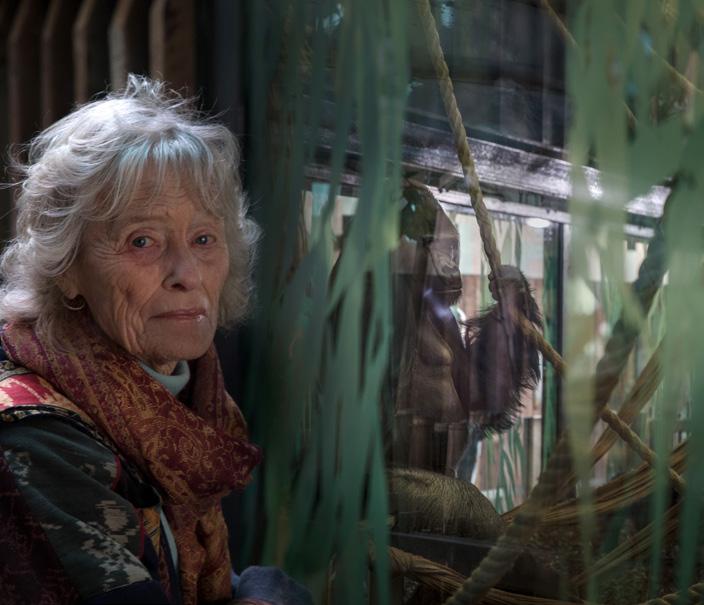
YOU CAN HELP
Do you share Virginia’s vision to create a kinder, better world? Visit bornfree.org.uk to donate and get more involved at bornfree.org.uk/circle-ofcompassion or email joanne@bornfree.org.uk to join Virginia’s exclusive Circle.
Making Born Free was a life-changing experience and, in 1984, Virginia, Bill and their eldest son Will went on to found Zoo Check, the charity that would evolve into the Born Free Foundation.


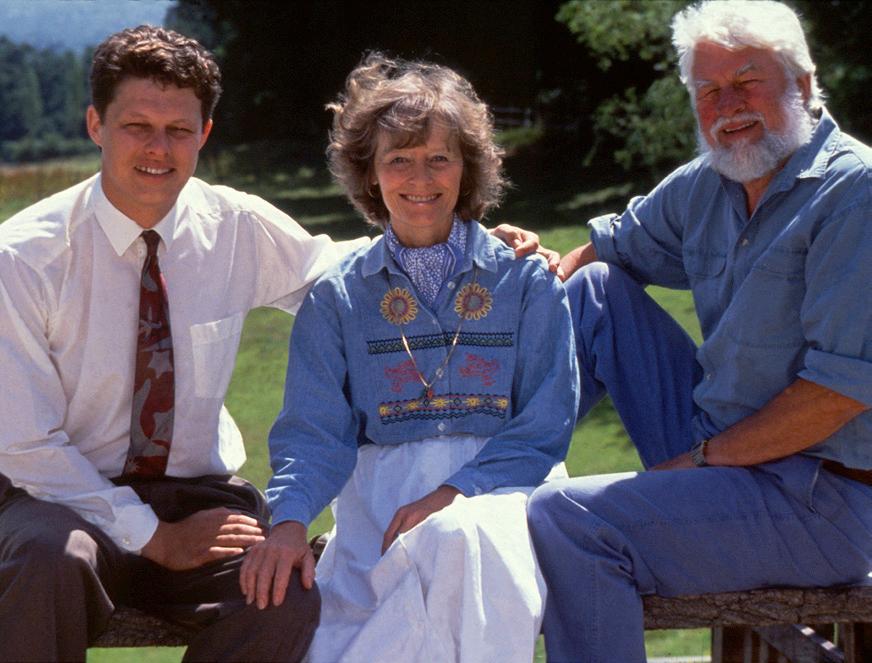


Passionately devoted to ending captive wild animal suffering and protecting wild animals in their natural habitat, Virginia has always been actively involved in Born Free:

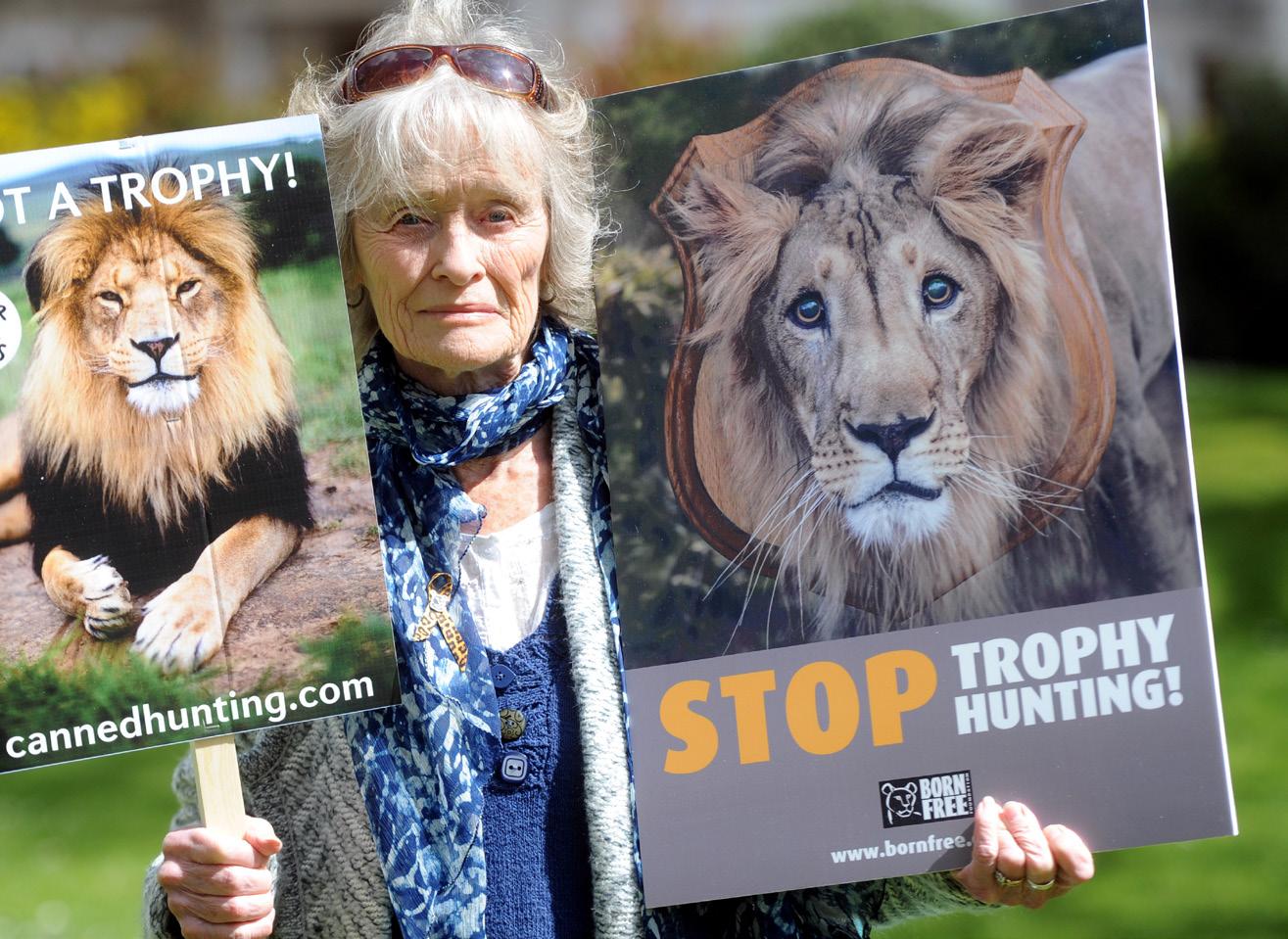
• Investigating zoos
• Helping on lion rescues
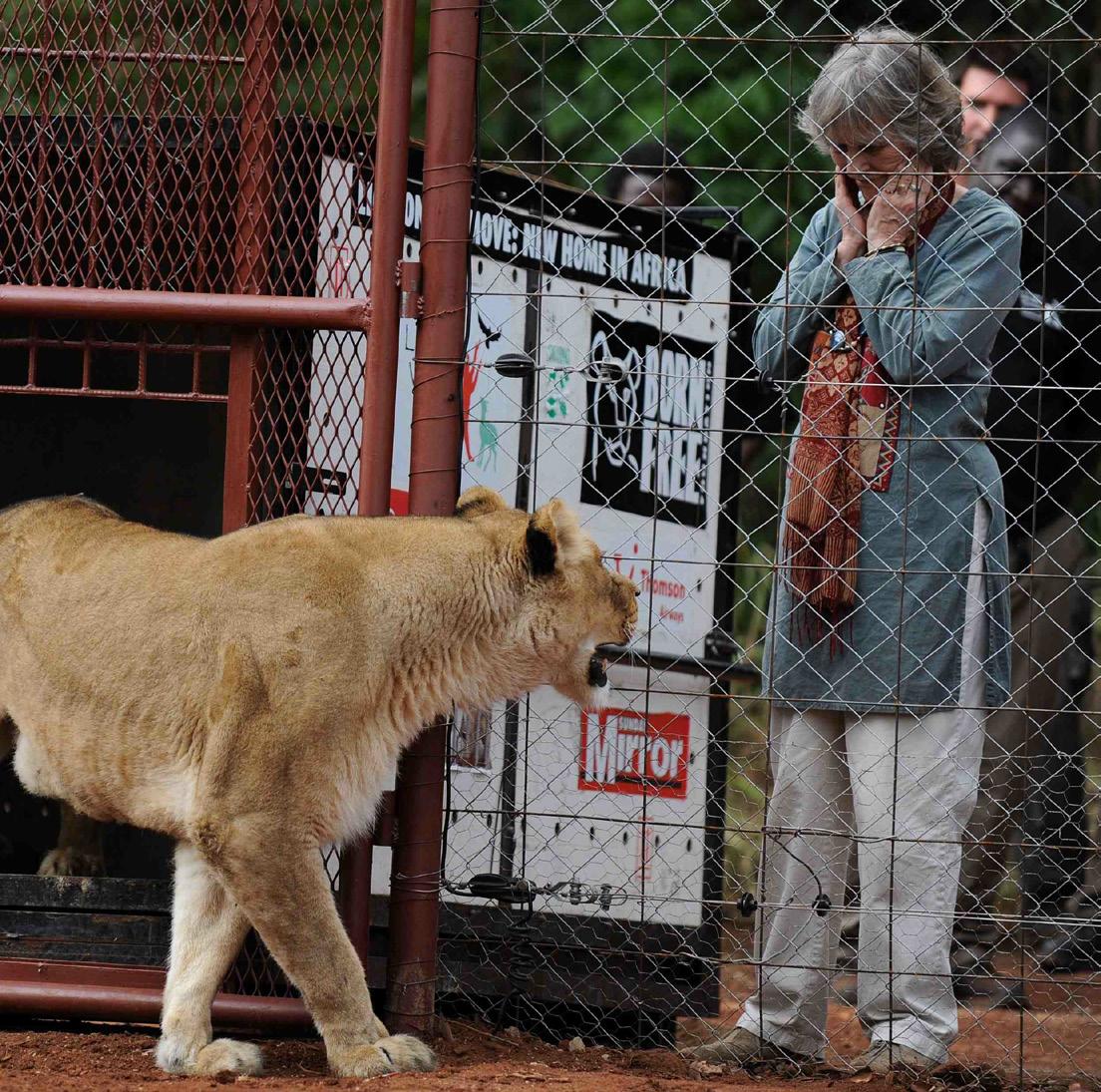
• Lobbying decision-makers
• Joining rallies and marches
• Speaking at our events

13
“I am sometimes asked, how long I will go on. Well, until I can’t any more! When you have a passion, you care, you don’t give it up.”
Images © Joe Pepler/PinPep, Daily Mirror, georgelogan.co.uk,
Mina Milanovic Photography, Paul Nicholls.
Above: A Town Like Alice with Peter Finch
Virginia helps launch our 2022 Year of the Lion
Welcoming Bella to her new sanctuary home
With son Will and husband Bill
I have been reflecting on the strange times we are living in. First the two years, on and off, of Covid lockdown. Did this denial of freedom give us some understanding of the ‘lockdown’ experienced by wild animals in captivity for years, usually with no chance of release? Perhaps not an issue many people think about. And, of course, there is the challenge of old age, when going out, driving a car and taking a plane may become less possible.
Relating this to an aspect of Born Free’s work is, for me, always uplifting. I often look at our website – which tells the stories of some of the beautiful animals we have rescued – and remember my unforgettable visits to see them at Shamwari in South Africa and Ensessa Kotteh in Ethiopia. Spacious, natural enclosures replacing the grim iron bars of the cage.
It is not only the lack of space and choice that captive animals so often endure, but loneliness. Of course, in the wild some species are solitary, but they don’t live in cages. I mentioned, a while ago, my visit to the Pata Store in Bangkok in 2006, which has a zoo on the top two floors. It is deeply shocking – typified by the female gorilla brought there in 1992. Her companion died in 2007. The Aspinall Foundation offered to rehome her but was rejected.

There are countless animals in captivity, worldwide, kept in deprived and unacceptable conditions. And, as we know, many others born and reared for the ‘canned hunting’ trade. Their fate is predictable and should shame us all.
When my husband Bill, and I, went to Kenya in 1964, to make the film Born Free, little did we know that, in 1968, we would make another film with the director James Hill
– An Elephant Called Slowly. Pole Pole, the little elephant in the film, had been caught from the wild as a gift to London Zoo and we were allowed to have her in the film prior to her departure. Filming over, we asked if we could buy her – for eventual return to the wild. We were told we could, but another young elephant would have to be captured – impossible to agree to.
A few years later, Pole Pole was living solitarily at London Zoo and we asked if she could be moved to Whipsnade, where there were other elephants. This was agreed. Tragically, she was kept standing so long in her travelling crate, she collapsed and had to be jacked up on to her feet. Finally, indoors, she was examined under anaesthetic and put to sleep. They said she had ‘lost the will to live’. As many of you know, her death – 40 years ago this October – was the start of the rest of our lives and the beginning of our charity.
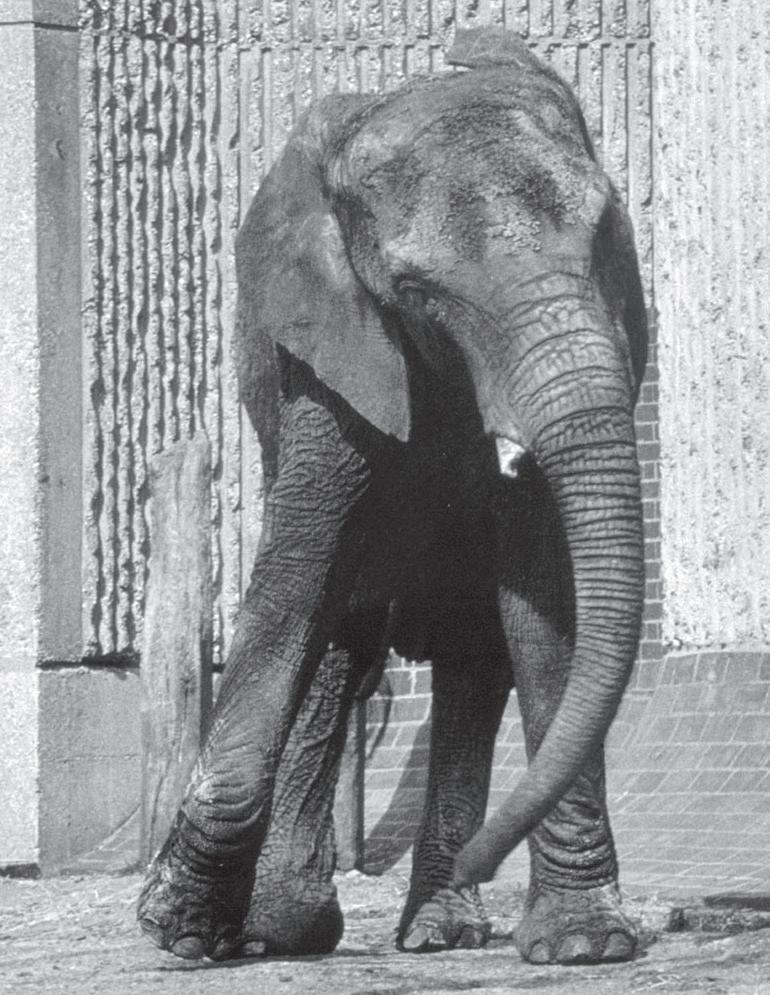 Dame Virginia McKenna Co-Founder & Trustee
Dame Virginia McKenna Co-Founder & Trustee
YOU CAN HELP
Virginia warmly invites you to join her Circle of Compassion, an inspiring yet select network of just 50 people with a passion for wild animals, on a mission to support wildlife. Contact joanne@bornfree.org.uk
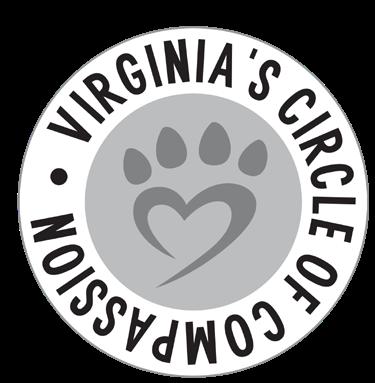
14
Never forgotten
Will you remember them?
Dame Virginia McKenna considers the plight of wild animals forced to spend a lifetime in lockdown in zoos, circuses and dolphinaria.
Alone and tormented at London Zoo
“To my horror and, despite our best efforts, Bua Noi the gorilla is still incarcerated in a concrete cage in Pata Store in Bangkok, Thailand.”
Introducing our new initiative for a select group of like-minded people who share our passion to end the captive exploitation of wild animals and keep wildlife safe in the wild. It’s an opportunity discover more about our work, meet our team, get to know us better and help take Born Free to the next level.

You can Join Our Pride and be an inaugural Born Free Champion with a minimum gift of £1,000 a year.

“We cannot do what needs to be done for wild animals without you. We need people who share our values – who want to be an integral part of the change we wish to see and be directly informed of the work we are doing.
“It’s all about collective impact and helping Born Free where we need it most. Born Free Champions fund our most important work and share our vision for a kinder, better world. Virginia and I would be thrilled to have you as part of this very special initiative.”
Will Travers OBE

Executive President
Exclusive benefits include:




• Unique pin badge
• Personal updates

• Annual lecture
• Special invitations
• Dedicated contact at Born Free
FOR MORE DETAILS
Visit bornfree.org.uk/champions or contact Joanne Bartholomew on 01403 240170 or joanne@bornfree.org.uk
georgelogan.co.uk, garyrobertsphotography.com
©
With your help, Born Free runs sanctuaries in Ethiopia and South Africa, has partner sanctuaries in Italy, South Africa and India, and supports rescue facilities around the world. But, running a sanctuary comes with many challenges and these are increasingly exacerbated by climate change.
At Ensessa Kotteh, our sanctuary in Ethiopia, long dry seasons make it difficult to source enough water to run the centre – home to over 150 rescued cheetahs, lions, hyenas, monkeys, large tortoises and more. Plans are now underway for the installation of a bore hole to dramatically improve water collection.


In South Africa, our two sanctuaries for lions and leopards are based at Shamwari Private Game Reserve, but “It’s the driest it has been in 30 years,” our Centre Manager Catherine Gillson reports. “The river that used to flow through the reserve has been dry for years, and trucks have to deliver water to reserve dams for our animals.”
Sanctuaries around the world are taking a hit due to flooding. In Lake Victoria, Uganda, Ngamba Island Chimpanzee Sanctuary has built an emergency wall to stop high water endangering chimps. In Cameroon, recent floods at Limbe Wildlife Centre damaged the centre and – worryingly – destroyed part of a flood defense, previously in place for ten years.
“Drought is impacting our work at the centre, and human-wildlife conflict is worsening because wild animals in search of food and water can destroy crops and scavenge near people. Our team has to work hard to pump enough water for our rescued animals.”
Staff working at other centres struggle with unseasonal weather and unbearably hot temperatures, with animals suffering too – spending increasing time in the shade. Greece has just experienced an unusually warm winter and mighty Kyriakos, our adopted bear at Arcturos sanctuary, didn’t begin hibernation as usual. He instead wandered his forest enclosure, apparently confused.
Such issues will only become more pronounced unless concerted action is taken to mitigate climate change. Meanwhile, increasing extremes mean Born Free and our colleagues are forced to redirect vital funds to address the impact of climate change. Please help!
Flo Blackbourn Rescue & Care Officer
FIND OUT MORE
Please adopt one of our rescued animals –bornfree.org.uk/adopt and contact Will Travers if you or your company could sponsor a life-saving borehole for Ensessa Kotteh – will@bornfree.org.uk
16 Care in a time of crisis
© georgelogan.co.uk
Our sanctuaries provide the best possible care for rescued cheetahs and other animals. But, climate change is having an increasingly negative impact, as Flo Blackbourn reports.
Bereket Girma Head of Centre Ensessa Kotteh, Ethiopia
COULD YOU BE OUR EYES AND EARS THIS SUMMER?
Whether you’re lucky enough to be holidaying abroad this year, or choose to stay closer to home, YOU can call out animal suffering and exploitation. We need you to stay on the lookout for wild animals exploited in captivity this summer. You can help ensure tourist excursions and activities don’t negatively impact on individual welfare, or on species in the wild.

The use of animals as ‘living props’ for photo opportunities is one of the most heavily reported issues on our online Raise the Red Flag platform. From orangutans, tigers and snakes exploited at zoos, to lion cubs, monkeys and parrots touted on beaches and busy holiday hotspots, so many animals are suffering for human entertainment and that ‘once in a lifetime photo opp’.
YOUR REPORTS
How to Raise the Red Flag
Send your reports to our online platform. Include your photos and video evidence at bornfree.org.uk/raise-the-red-flag
This year we’re delving deeper with our new Selfish Selfies initiative, examining why misguided people desire such a souvenir photo for their mantlepiece or social media post. Determined to bring this exploitation to an end, our campaign highlights the:
• Serious animal welfare implications and immense distress caused to individual animals
• Impact on species in the wild (many animals used in this way are wild-caught)
• Threat to human safety from injury and disease transmission
You can support our campaign:
1. Refuse to pose with a captive wild animal for a photo
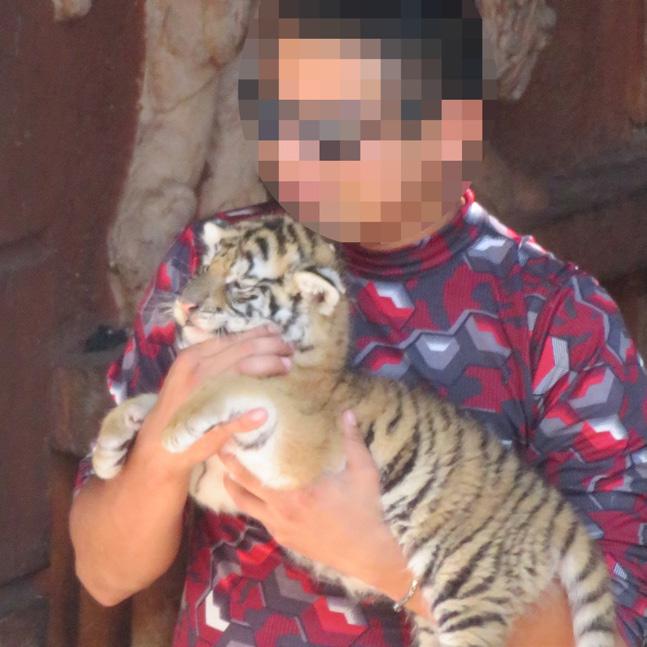
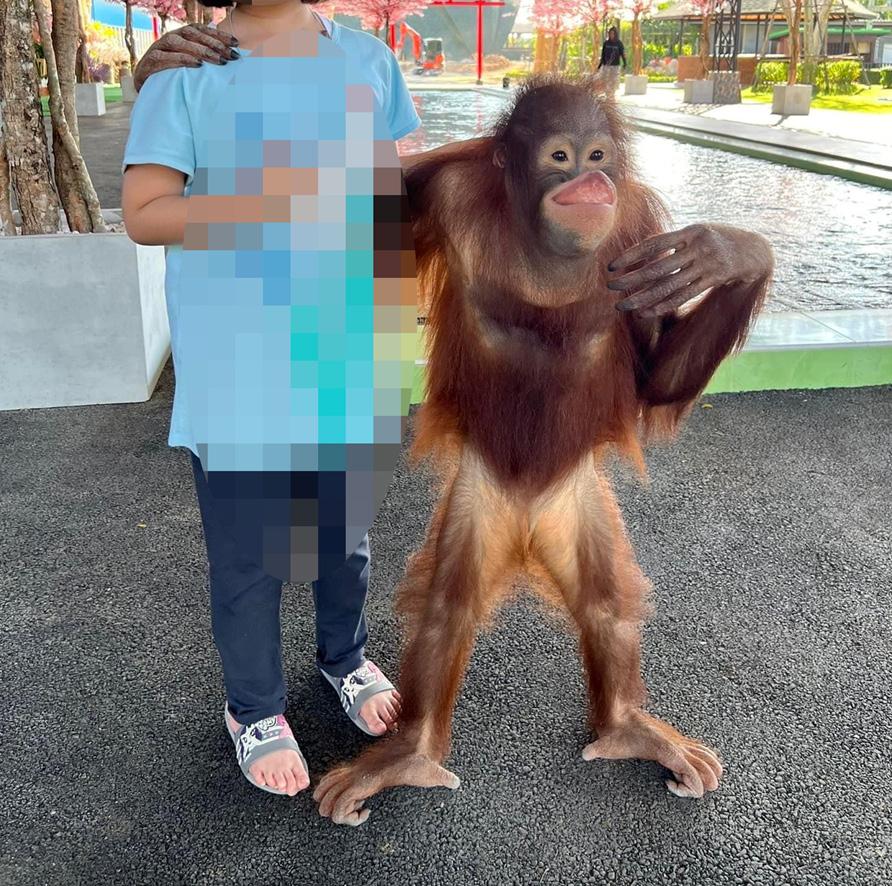
2. Help spread the word about Selfish Selfies to your friends and family
3. Voice your concerns directly with captive facilities
4. Complain to the tour operators promoting the activity
5. Contact relevant country authorities or tourist boards
6. Send your eyewitness reports to bornfree.org.uk/ raise-the-red-flag
Sarah Jefferson Captivity Campaigns Information Coordinator sarahj@bornfree.org.uk
FIND OUT MORE
Read our new Selfish Selfies report at bornfree.org.uk/publications/selfish-selfies

17 Wild Life | Summer 2023
“Three
monkeys dressed in clothes in Marrakesh market square were used as photo props. One monkey was hit when it didn’t behave.”
Wild animals should never be used as photo props. Sarah Jefferson encourages you to Raise the Red Flag, report animal abuse, and stop Selfish Selfies.
“Sriayuthaya Lion Park in Thailand had various individual animals including a young orangutan, some chained, forced to pose for photos.”
“On the street in Playa del Carmen, Mexico I saw tiger and jaguar cubs being passed around for people to take pictures with.”
To find out more about our Great Debate and all of our Education work please visit bornfree.org.uk/education.
Want to save wildlife, stop conflict and protect natural resources? It’s essential to empower local people, explains Charles Njoroge and Eve Pawsey.

“Education is a critical tool in addressing the climate crisis. It encourages behaviour change and helps people make informed decisions. Local communities, not least young people, have a significant stake in addressing the crises we face. They play a key role in the future of our planet, including its environmental health.”
Laura Gosset Head of Education
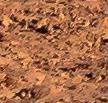
FIND OUT MORE
18 Share water & plant trees
Local people are key to securing a safe future for wild animals. Their participation and empowerment are essential to help address the dual crises of climate change and biodiversity loss. Placing responsibility into the hands of locals encourages a sense of ownership, enabling them to become custodians of available resources. Using this approach, Born Free works closely with communities bordering Meru National Park, in Kenya – home to our conservation projects for elephants, lions, giraffe and rhino.
About 15 years ago, Meru had 14 rivers flowing into the park. Today there are just five – likely a result of climate change and human activities, such as diverting waterways and deforestation. Competition for water has led to an increase in human-wildlife conflict incidents in the area. Wild animals move into community areas to look for water, leading to crops being raided and property destroyed, as well as human and animal injuries and even deaths. This is exacerbated by the fact that 70% of Kenya’s wildlife lives outside of protected areas.
Born Free’s Education team in Kenya helps existing community water groups develop humane solutions to conflict. For example, planting trees can rehabilitate local water source areas that have become overrun with livestock. This in turn helps secure clean river water, as well as creating ‘carbon sinks’ (absorbing carbon). We hope this will be one step in helping communities secure water for domestic use and irrigation, playing a role in supporting livelihoods.
The Education team also engages the community by creating awareness of Kenya’s Water Act, including ‘water rights’. We support local water management plans and help people understand the need for equitable sharing, especially in times of drought.
Helping people, of all ages, understand the climate crisis encourages them to become change-makers and work towards a more sustainable future. This is why Born Free’s UK Education team has created free online climate change teaching resources, as part of our Great Debate series. We explain the causes of climate change and how working with nature can reduce its impact. Students are encouraged to debate ‘Is wildlife vital in our fight against climate change?’ and, in doing so, develop essential research and presentation skills. These abilities help equip young people to take action against the climate crisis and encourage others to get involved.
This work goes hand in hand with our projects in South Africa, Ethiopia and Kenya to plant trees with partner schools in their compounds. We increase vegetation cover, explain why trees are so important, and help mitigate climate change by contributing to local carbon storage and the water cycle. What a practical way to encourage young people to make informed decisions and empower them to take action against climate change!

Dreams of the Wild 14th July 2023
Dorking Halls, Surrey, UK
‘Where wildlife and dance meet’ – a professional dance show linked to our new series of school workshops.
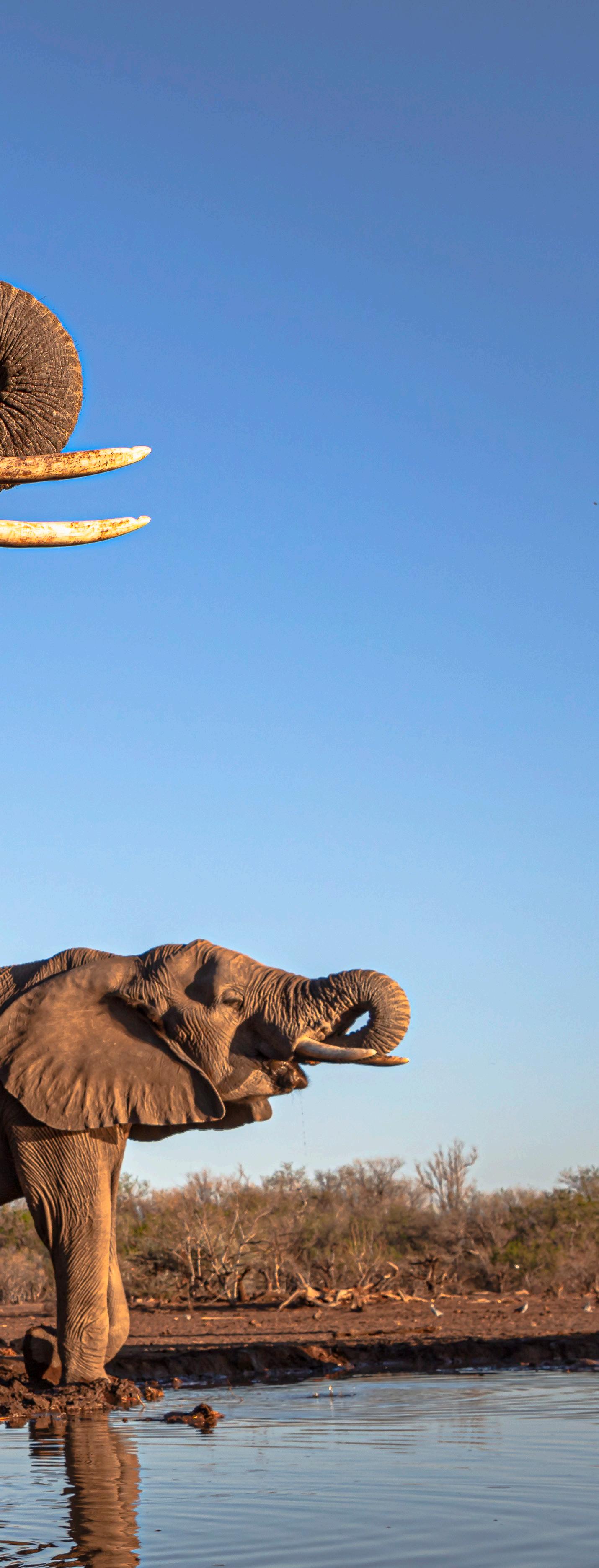
See bornfree.org.uk/events for details.
Charles Njoroge Community Coordinator Meru, Kenya
Eve Pawsey Youth Engagement Assistant UK
19 Wild Life | Summer 2023
Born Free’s Alois Mweu and Nicholas Bii help Kathithi Primary School children plant trees
PANGOLIN PROTECTORS
To celebrate February’s World Pangolin Day, 11-year-old Jessica, her sister Phoebe and friends Maisie and Bea raised £254 with a six-mile walk in Northamptonshire. They were met by wildlife crime officer PC Chloe Gillies, whose investigation into a local man selling pangolin scales led to a prosecution.
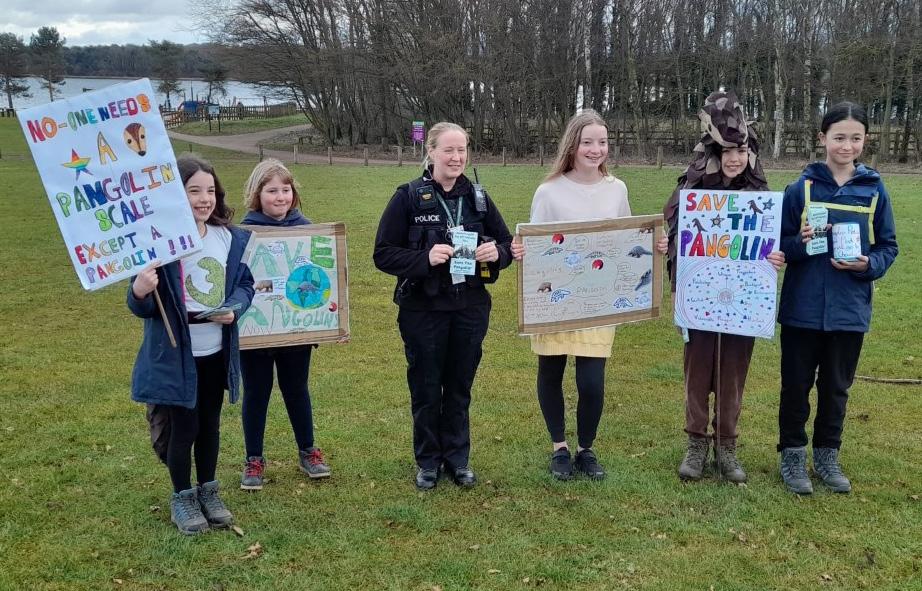
SUPER SUPPORTER
There’s no stopping Tom aged 13. Over the years he has raised thousands for Born Free by walking Hadrian’s Wall, taking on the Three Peaks and even making it to Everest Base Camp. He is now planning a Land’s End to John O’Groats trek in 2024. Way to go Tom, we’re in awe!

In memory of Bill Moyle
Emma Logan raised close to £2,000 in honour of her father Bill – a huge supporter of Born Free, and now her partner KB Beaton has done it again. The crowd cheered as he crossed the finish line of South Africa’s gruelling 67-mile Cape Argus Cycle Tour, raising £2,254 in Bill’s name.

‘No pressies please…’
Said twins Robbie and Harlowe in their birthday party invite, ‘let’s save animals instead.’ The sevenyear-old pair already adopt several Born Free animals and love wildlife so much they asked for donations this year rather than gifts. You two are so kind and generous!
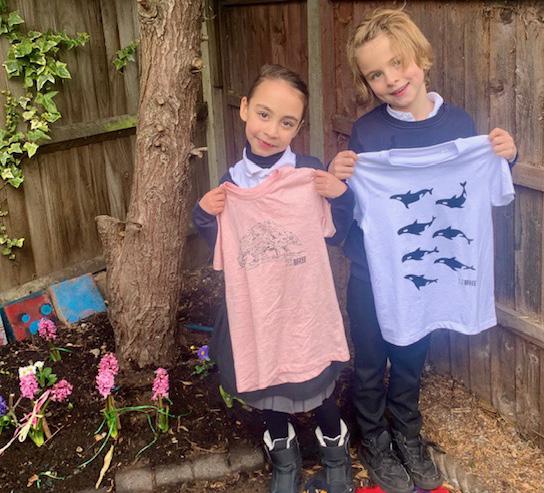
YOU CAN HELP
Just keep swimming
California-based Sophie Kriefman swam an extraordinary 600 lengths in aid of Born Free, with just one 15-minute stop. That’s an incredible six hours and 8.4 miles of swimming! “I’d like to raise money for those animals which aren’t free,” she explained.

Going wild for Born Free!
Inspired? Visit bornfree.org.uk/fundraisers to hold your own event or activity in aid of wild animals, or email carina@bornfree.org.uk
20
Incredible supporters like you are raising vital funds and awareness.
HOW WILD ANIMALS REGULATE THE CLIMATE

Why did you co-found Rebalance Earth and Blue-Green Future?
Ralph, you are widely considered one of the world’s most innovative economic thinkers.

I never thought of myself that way. I’m a professional financial economist, at the International Monetary Fund (IMF) for almost 25 years. I’m now on sabbatical, building a new paradigm that is nature- and peoplecentric and positive.

How is the IMF involved in climate change?
The IMF and World Bank ensure global financial stability and shared economic growth. The IMF gives advice to governments – and provides loans. In a sense, it is the global financial monitor and seeks macroeconomic stability. Climate change is a huge shock to the global economic system and the IMF is very much involved, especially with fragile states, low income, and small island economies.
Can saving wild animals help save the planet?
Science is revealing that animals play a key role in climate change mitigation, be it directly, as in the case of the great whales, or indirectly through the way elephants, hippos, rhinos and others interact with the forest and enhance its function.
Rebalance Earth gave me the chance to work with people who understand technology and wildlife conservation and restoration. It was set up to prove the concept of a new economy with living nature is at its core. Blue-Green Future is the group of professionals who developed the valuation process. We sat down with scientists to consider what the model would look like for a population of elephants, the carbon flow over time, building the financial valuation, and what it means for an economy when you move from an extractive relationship with nature to a regenerative relationship.
How can Born Free supporters get involved?
Born Free is protecting wild animals so they can live their lives in nature. But by doing that they’re also doing a lot for humanity. Born Free’s supporters help ensure animals are living life as nature deemed them to do, and we get something in return.
Why did you get involved in our Beyond Trophy Hunting event (page 5) last year?
I was honoured to be invited. My job was to provide an alternative economic model. The trophy hunting model is ‘I win, you lose’. And who loses? The animals. Who gives people the licence to kill, to take a life?
Any final thoughts?
What you guys are doing is the real thing. I’m a supporting act and will try to help any way I can. A nature that’s thriving can only be good for humanity. We are from that nature and need to come home while we still have a chance.
To read Ralph’s fascinating full interview visit: bornfree.org.uk//blog/ralph-chami-interview
21 Wild Life | Summer 2023
FIND OUT MORE
Our Head of Policy Dr Mark Jones asks Ralph Chami, Assistant Director at the International Monetary Fund, how being an economist links to his passion for wildlife.
“We are from nature and need to come home while we still have a chance.”
One more thing
A day in the life of Elephant Guardian Patrick Kanake, who helps local people in Kenya find solutions to conflict. Saving Meru’s Giants Manager Newton Simiyu reports.

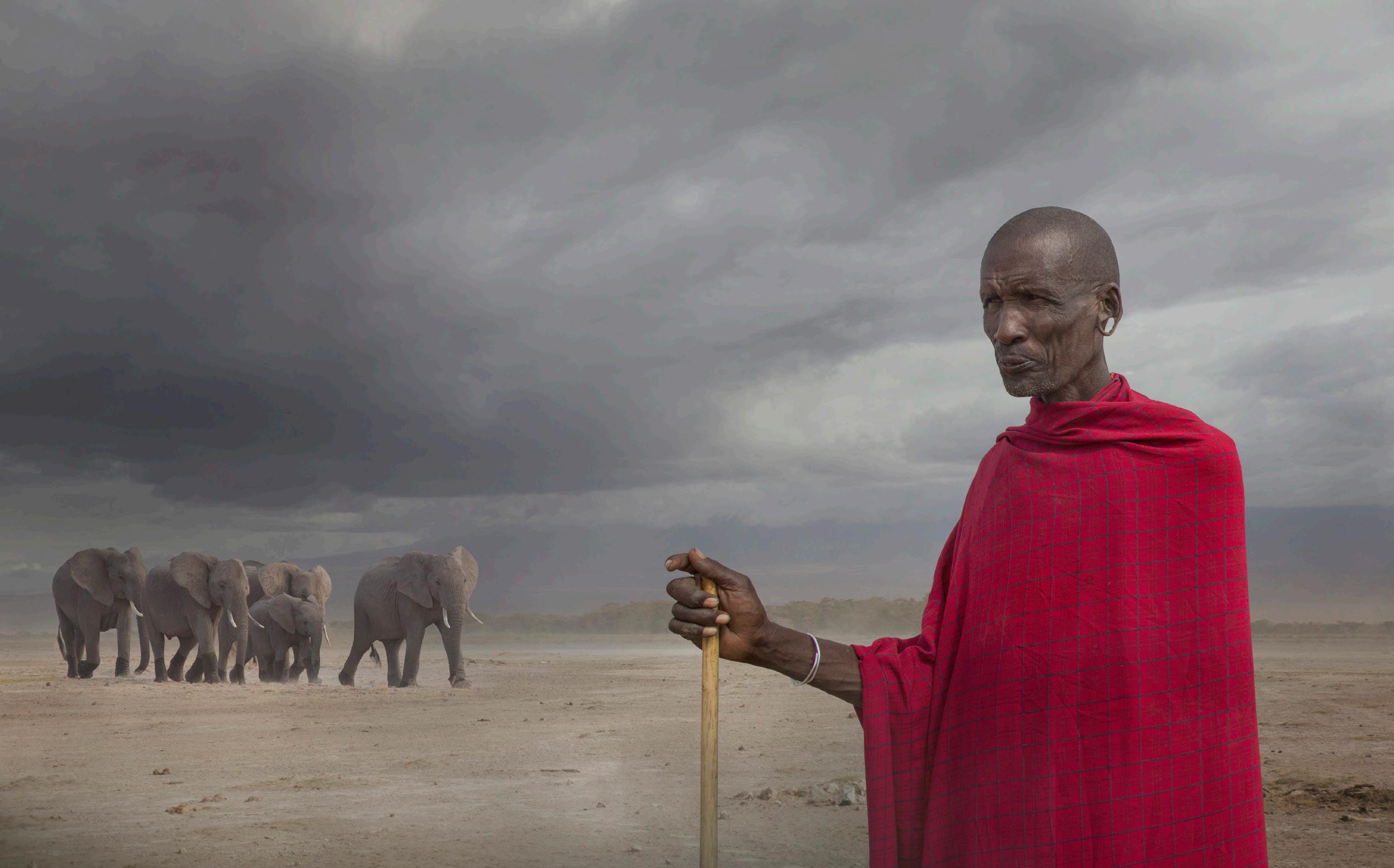

It was a calm and cool night in Makutano, one of Born Free’s project areas close to Meru National Park, when Kanake was woken by an unexpected phone call. “Elephants are about to breach my farm’s fence,” an abrupt voice exclaims, and Kanake jumped out of bed, noticing it was midnight.
The previous day had gone well, Kanake had visited several groups of farmers on his Suzuki motorcycle, to discuss the value of protecting wild animals. He then stopped by at one of our pilot farms, using beehive fences to lessen elephant crop raiding (elephants are scared of bees!) and provide income from honey, before getting home late that evening, exhausted.
But now, in the middle of the night, Kanake knew there was no time to waste. “I made a quick call to the KWS* Community Warden to request assistance and got ready to leave. But, then the farmer called back – one elephant had already entered his farm. I assured him help was on its way and he must stay inside for his safety.”
Sadly, Meru had continued to suffer from Kenya’s extended drought (rains finally arrived in March 2023), with water scarcity and depletion of natural fodder. Competition for resources forces wildlife to venture into community spaces and conflict is increasingly common. Both people and animals have had it tough.
After breakfast, it was another working day for Kanake, who is passionate about helping his community coexist with wildlife. Another farmer calls – could Kanake visit? Crop-raiding elephants had devastated his only source of food and income. “It was horrible to see the damage,” Kanake recalls. “Three-quarters of the harvest was destroyed. The farmer told me if it were not for Born Free, he would retaliate.”
The situation is deeply affecting for Kanake. He keeps on reassuring local people Born Free is here to help. But, villagers have very high expectations of him, because he is now an ambassador for conservation. “When crops are destroyed and compensation is slow, I can feel stressed because they expect a solution from me.”
YOU CAN HELP

Could you help Kanake fly the flag for elephants? £40 could buy one beehive to deter elephants and protect crops – each farm needs 12. Thank you! bornfree.org.uk/conflict-appeal
One more thing

22
*Kenya Wildlife Service
© georgelogan.co.uk Scan me!
Elephant crop damage
CONGRATS DAME VIRGINIA!
Wonderful gifts to celebrate our very own lioness.



Less waste, so more of your funds help wild animals!

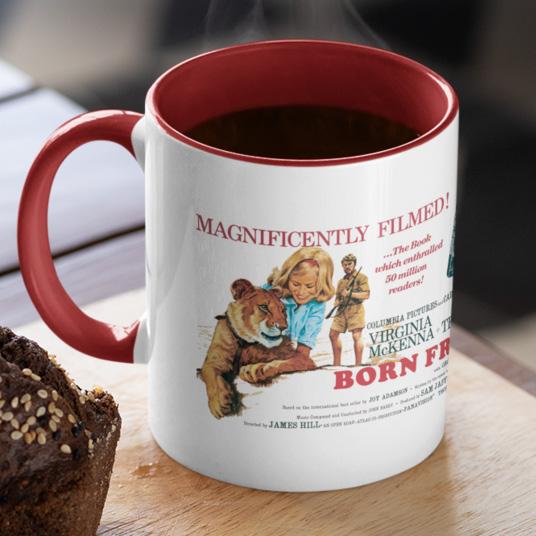

“On the behalf of our entire Pride of Meru team in Kenya, we are so grateful for Kingspan’s support over the last few years. It has allowed us to monitor and identify lions in Meru National Park, Born Free’s heartland, to ensure the prides are doing well, and to launch critical human-lion conflict mitigation work in the communities around the park, so we can ensure the long-term survival of Meru’s wonderful lions.”
Dr Nikki Tagg Head of Conservation
With Kingspan’s assistance, our innovative work to protect lions and help them live together with people without conflict in Meru has included:

• Covering 10,000 miles a year in our vehicle to monitor lions and rescue individuals from snares


• Installing 40 camera traps to help identify and study the park’s 70+ adult lions
• Employing five Lion Ambassadors drawn from local communities in conflict hotspots to fly the flag for lions and collate conflict reports
• Utilising flashing ‘Lion Lights’ to deter lions from livestock
• Trialling the ‘eye-cow’ technique, painting eyes on the rumps of cows to deter lion ambushes from behind
Every year, Kingspan helps Born Free promote World Lion Day on 10th August and encourages their employees to get involved. Last year, Kingspan staff took part in our inaugural Walk on the Wild Side, walking 20,000 steps to honour the world’s 20,000 wild lions and raise funds.
Thanks Kingspan, we couldn’t do it without you!

now: shop.bornfree.org.uk
Shop
Play our Wildlife Lottery for only £1 a week – you’ll help animals to thrive in the wild and could win up to £10,000. It’s win-win!
We’ve already had 1,000 winners and given away over £10,000 in prize money –including our latest winner, Ms Ogilvie from Portree, who won a fantastic £1,000!
TO SAVE WILD ANIMAL LIVES AND STOP SUFFERING,

START PLAYING
TODAY AT LOTTERY.BORNFREE.ORG.UK
Please gamble responsibly. If you are worried about your gambling or that of someone close to you, BeGambleAware is the UK’s leading authority on the provision of support, advice and counselling to people affected by gambling problems. If you or someone you know needs help or advice call the National Gambling Helpline on 0808 8020 133 (lines open 24 hours a day, 7 days a week) or visit the BeGambleAware website: www.begambleaware.org
£1to play per week

Registered Charity No: 1070906 © georgelogan.co.uk
A LEGACY OF LOVE
Tigers are on the brink of extinction after devastating declines due to poaching and habitat loss – which leads to conflict with local people. In the past 100 years, 95% have been wiped out and today less than 4,000 remain.
The tiger’s forest home is cut down for wood, farms, roads and railways. Tigers struggle to find food and people venture into forests to graze livestock or gather wood – leading to deadly conflict.
But, with the help of a kind legacy, Born Free can support a team of local conservationists in Central India. Since our work began in 2004 the impact has been phenomenal. India is home to more than 75% of all wild tigers and numbers have more than doubled from 1,411 in 2004-6 to 3,167 today.
You too can leave a legacy of love. With a gift in your Will, our life-saving work can continue. We can employ local Tiger Ambassadors and fund practical solutions to conflict such as sustainable livelihood opportunities, education materials, mobile health units, training hundreds of youth volunteers in conservation and much more.
With the help of a kind legacy, Born Free can support a team of local conservationists in Central India. Since our work began in 2004 the impact has been phenomenal. India is home to more than 75% of all wild tigers and numbers have more than doubled from 1,411 in 2004-6 to 3,167 today.

We hope, after you’ve remembered your loved ones, you would consider leaving even a small share of your estate to Born Free. And to make this important decision as easy as we can, we have partnered with Farewill, an award-winning UK Will writing service, to help you complete your FREE Will in under 30 minutes, either online or by calling their dedicated Will specialist service team.
To leave a legacy of love, simply:
• Visit farewill.com/bornfree-web
• Or phone 020 8050 2686.
Thank you.
bornfreefoundation bornfreefdn Born Free Foundation, 2nd Floor, Frazer House, 14 Carfax, Horsham, West Sussex, RH12 1ER, UK bornfree.org.uk | +44 (0) 1403 240170 | info@bornfree.org.uk bornfreefoundation bornfreefoundation The views expressed in Wild Life are not necessarily those of Born Free. If you have any comments or issues you would like to raise, please write to the Managing Editor. Will Travers - Managing Editor: will@bornfree.org.uk Celia Nicholls - Editor: celia@bornfree.org.uk, Claire Stanford - Graphics & Brand Manger: claire@bornfree.org.uk Can you go digital? Sign up to go green, save paper and reduce costs. Email info@bornfree.org.uk Printed on sustainably sourced paper | Registered Charity No: 1070906 bornfreefoundation
© tigersintheforest.com






















































 Dame Virginia McKenna Co-Founder & Trustee
Dame Virginia McKenna Co-Founder & Trustee












































